All times below are US PDT (Pacific Daylight Time) UTC/GMT – 7 hours
WELCOME & OPENING PLENARY: Tackling Our Greatest Challenges Through Technology
9:00am - 10:30am PDT
5 Subsessions
Speakers
.jpg)
Bio
Alex Bedder (He/Him) is the Content Lead on PPFA’s Digital Product Lab, focusing on the content strategy for both the sex ed chat bot, Roo, and the period tracking app, Spot On. Before joining PPFA, he worked across tech and media at companies like Betaworks and Gizmodo Media Group, crafting different voices and narratives. Across his career he has gotten pretty comfortable with a character limit: he used write weather forecasts in 280 characters or less, and now he does the same with sexual and reproductive health. When he’s not working on Roo you can find Alex in the kitchen cooking, catching up on TV (there’s too much of it!) or performing. He is based in Brooklyn, NY.Bio
Description
We are very excited to announce our opening keynote by California’s first Surgeon General, Dr. Nadine Burke Harris. As California’s first Surgeon General, Dr. Nadine Burke Harris has established early childhood, health equity and Adverse Childhood Experiences (ACEs) and toxic stress as key priorities. Dr. Burke Harris has set a bold goal to reduce ACEs and toxic stress by half in one generation. Due to COVID19 safety protocols, we have decided that the best way to bring the keynote to all conference participants is a virtual interview with Dr. Burke Harris conducted by ETR’s CEO, Dr. Vignetta Charles.Speakers
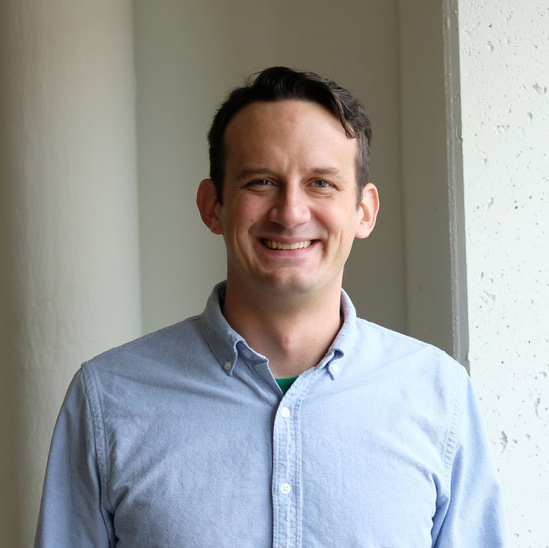
Bio
Kevin is Male Contraceptive Initiative’s Marketing & Communications Director, leading the organization’s advocacy and outreach efforts. His background in marketing, communications, and human-centered design translates to an empathic approach to storytelling, and a keen ability to make information personable and approachable.Bio
Description
TECHnically Black: An unapologetic conversation with young black leaders about how technology has increased youth activism in the wake of the Black Lives Matter (BLM) movement. Through this conversation, we aim to amplify youth voices in the BLM movement, define how it’s a public health issue as well, and highlight the use of tech and social media that have been critical in mobilizing communities in the US and around the globe.Speakers
Bio
Bio
Bio
Description
The time is NOW. Compelling youth leadership during this defining moment in climate history. Join these youth leaders as they share their activism, leadership and innovative use of technology in the fight against climate change.Speakers
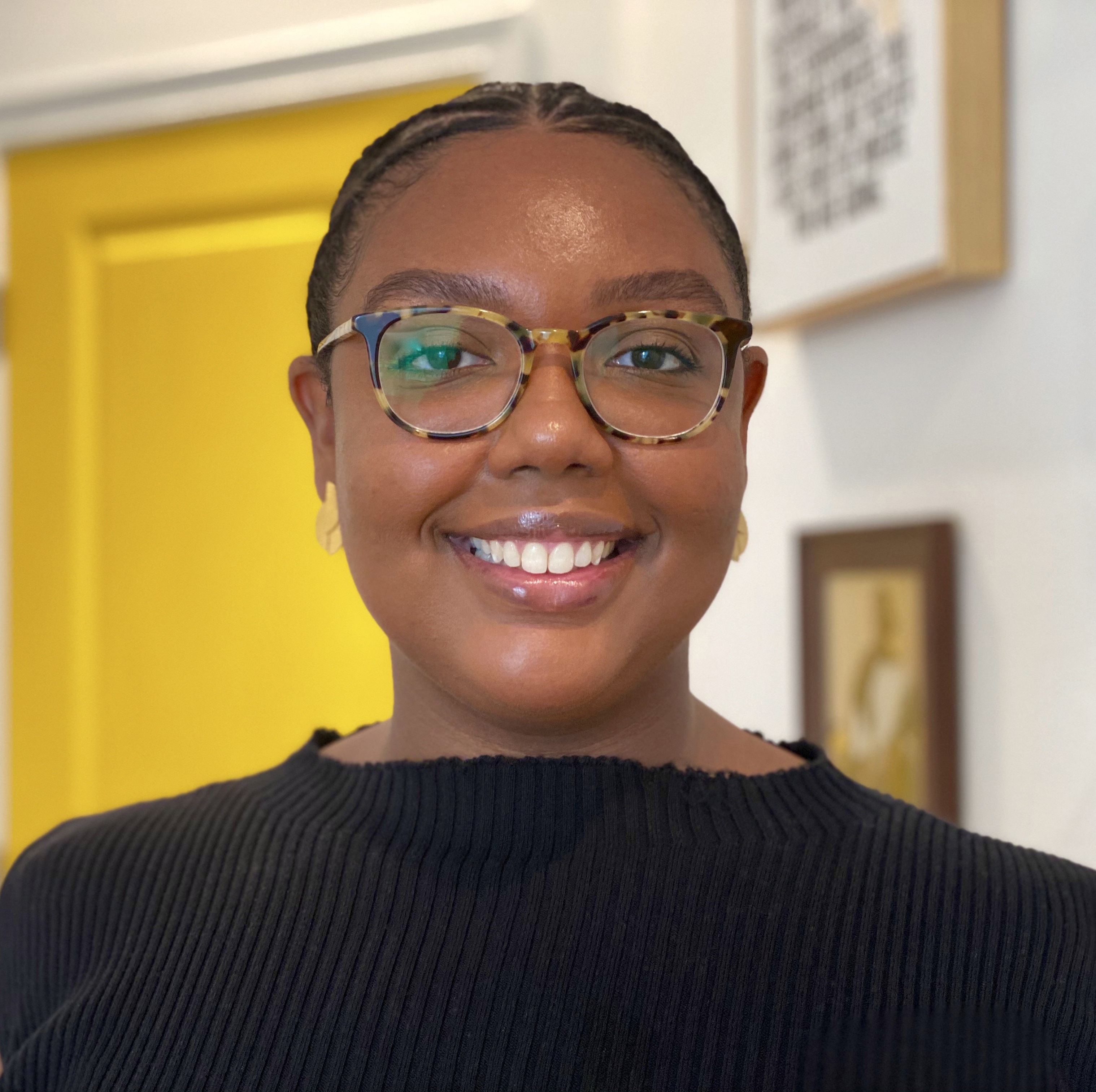
Bio
Natalie Erasme is a Research Assistant at the University of South Florida’s Florida Prevention Research Center and Chair of the Southwest Florida Cancer Control Collaborative. Her primary interests are the cultural nuances of health and addressing health disparities through youth and community empowerment. She has worked with academic, non-profit, and government organizations to meet communities where they are. Natalie holds a Master of Public Health in Public Health Education from the University of South Florida College of Public Health and a Bachelor of Arts degree in Sociology and Anthropology from Fordham University.Bio

Bio
Amanda is a scientist turned public health advocate. For the past five years she has worked to advance access to sexual and reproductive health as a program officer for the multi-country Advance Family Planning (AFP) advocacy initiative within the Bill & Melinda Gates Institute for Population and Reproductive Health at the Johns Hopkins Bloomberg School of Public Health. She supports AFP’s efforts to monitor, document, and learn from its more than 11 years of supporting evidence-based, locally -driven advocacy in partnership with advocates and experts in Africa and Asia. She graduated from Purdue University with a Bachelors of Science with honors in chemistry and from the Brown School at Washington University in St. Louis with a Masters in Public Health specializing in global health. In her free time, Amanda enjoys baking, cross-stitch, and walks with her family and their two dogs.Description
Giving a nod to NOD: A COVID responsive app for youth mental health.Speaker
Bio
BREAKOUT PANEL: Hello? Operator? I’d like some information please! Using chatbots and virtual reality to better serve young people
10:45am - 12:00pm PDT
Healthcare innovators have incorporated virtual reality (VR), artificial intelligence (AI) and digital platforms to help young people access youth-centered and on-demand health information. In this panel, you’ll learn how healthcare providers use VR to expand their understanding of young peoples’ primary care needs, how educators have teamed up with chatbots to respond to young peoples’ sexual health questions, how a trusted reproductive health program went digital, and how YOU can share knowledge about self-managed abortion. Leaders from Jhpiego, Planned Parenthood, Plan C and Pro Mujer will share what they are doing to actively engage young people using technology.
4 Subsessions
Description
How can a sex ed chat bot support a live chat experience? And how can a live chat experience help a chat bot? Learn how Planned Parenthood uses an AI-powered chat bot alongside their live health educator-powered Chat/Text program to provide an improved user experience and increase scalable reach, particularly for younger teens. Our two national interactive chat programs integrate to create a cohesive ecosystem to best answer young people’s sexual health questions. Chat/Text is a longstanding, live hotline where educators use instant or text messaging to answer sexual health questions. Roo is a chat bot designed to reach 13-17 year olds. We will discuss what we’ve found for escalating conversations from bot to educator, how young people interact with each when they escalate, and what we have been finding about what works and doesn’t.Speakers

Bio
Afro Latina Trilce is the Latinx Content Strategist for Digital Products at Planned Parenthood Federation of America where she leads work on research, content strategies, partnership and media outreach, specifically for the Latinx communities. Besides her BA in social communications, she’s a relationship coach and pleasure centered sex educator.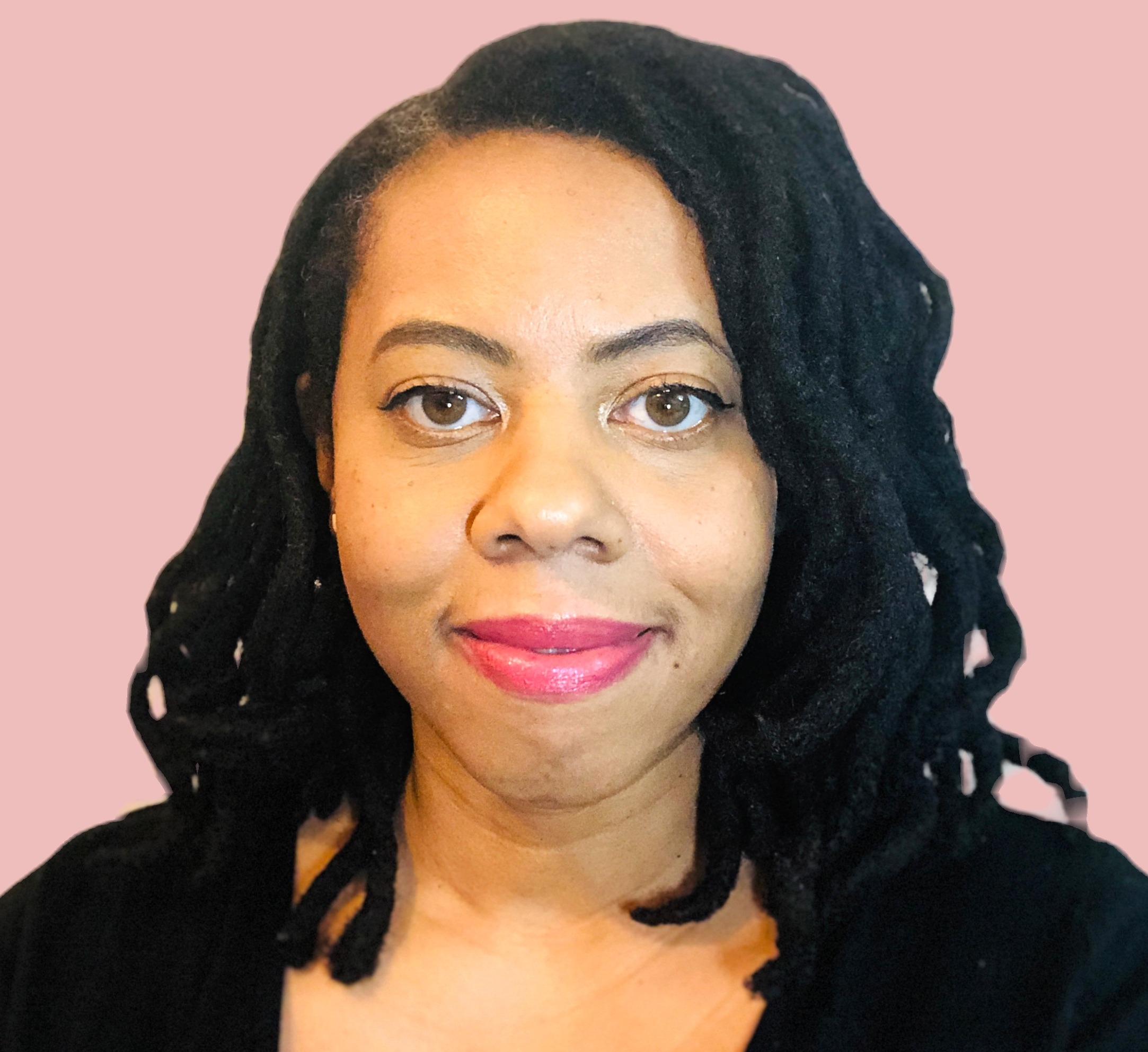
Bio
Dara Hartley is a New York City-based UX Researcher, educator and maker who loves to use innovative thinking to solve human-centered problems.Description
Pro Mujer in 30 years has focused on providing education and preventative healthcare for women as a tool for empowerment. Starting 2020 we have defined a bold new strategy with the goal of transforming primary healthcare for women in Latin America. We are building an integral healthcare & wellness model, through a digitally enabled delivery platform for facilitating education, prevention and access to high-quality low cost services. A one-stop-shop for health, that can be accessed through three channels: digital, physical spaces and community networkSpeaker
Bio
Description
We need a Plan C! What is a self-managed abortion, and why do we not know about it? This workshop will highlight abortion pill access in the United States including where to find them online, discuss how self-managed abortion fits within the current sociopolitical landscape, and train you to become a Plan C “Ambassador of Information” - how we can reclaim bodily autonomy using our technology and our networks.Speaker
Bio
Description
With accessible 360-degree video and virtual reality technologies emerging, we are now able to fully immerse health care providers into a youth’s world, supporting increased awareness, sensitivity, and empathy. Understanding the youth perspective – including their values, challenges, needs, and desires – is crucial for improving the quality and uptake of essential primary healthcare services. We believe that the benefits of an immersive experience with 360-degree video and virtual reality technology can be applied to improve the design and implementation of respectful, person-centered interventions. This technology also provides an opportunity to design unique learning experiences, wherein providers are fully immersed into a youth’s world, supporting the development of increased awareness, sensitivity, and empathy.Speakers
Bio
Cosima Lenz is a Technical Officer supporting adolescent, youth, and child programs at the Elizabeth Glaser Pediatrics AIDS Foundation (EGPAF) in Washington D.C. Working on the global Technical Leadership and Program Optimization team, Cosima supports projects to develop training, technical tools and guidance, and coordinates the Committee of African Youth Advisors (CAYA). Her focus technical areas are adolescents, youth, and gender based violence. EGPAF works in 17 countries and provides HIV services at over 5,000 sites across sub-Saharan Africa and India. Prior to EGPAF, Cosima supported youth activities in Guatemala and South Africa, as well as mystery client research with the WHO. She has a bachelor’s degree from Northwestern University and a Masters in Public Health from University of California in Los Angeles.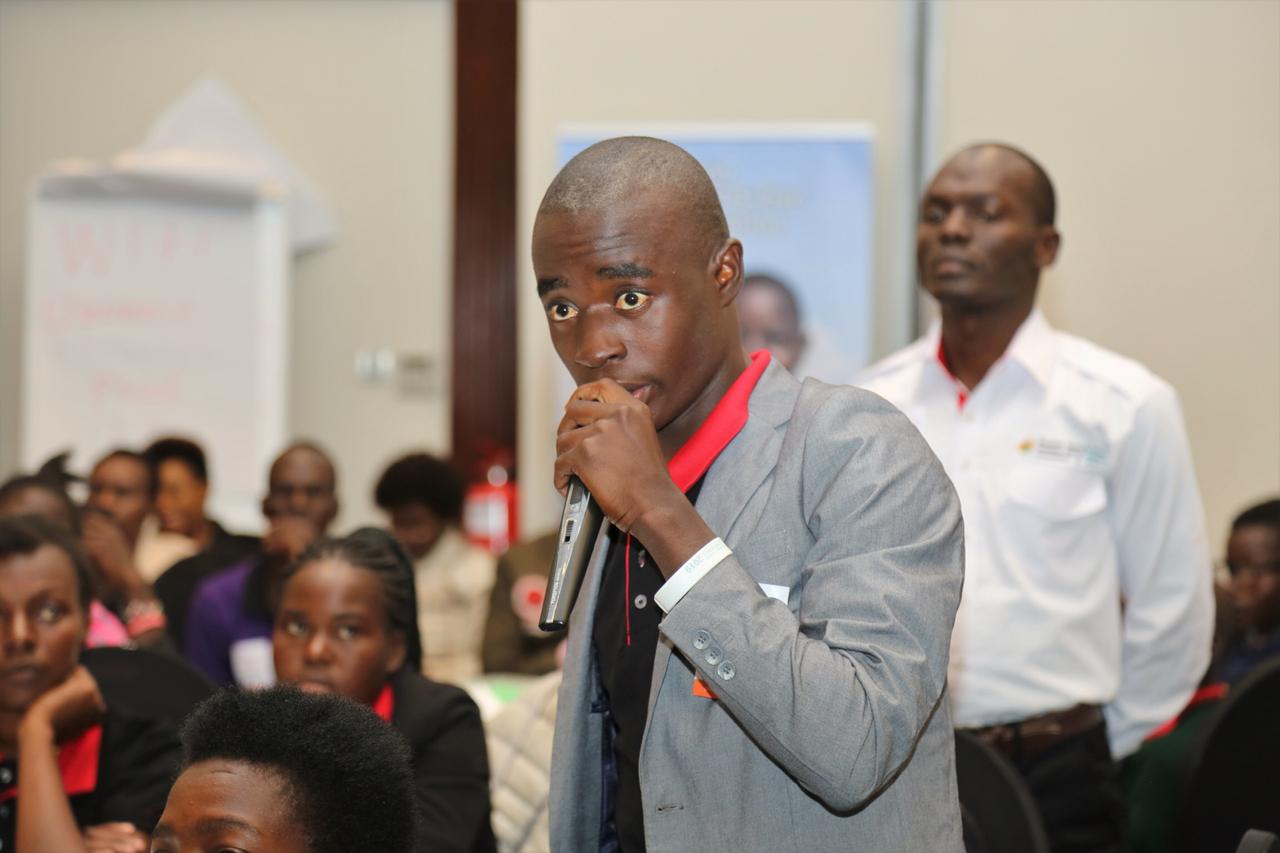
Bio
Joshua is an adolescent champion in Homa Bay Kenya and highly regarded. His leadership and capacity are highlighted by his drive and accomplishments. He has written and has had an oral abstract accepted to the third annual scientific conference on ASRHR in Kenya on the implications of peer champions in advocating and disseminating SRH matters. He has experience speaking at a variety of global fora including Virology Education Adolescent Workshop and the New Horizons Technical Workshop in October 2019. He was also selected to attend the SPARK19 event, aimed to build capacity of young people in Lesotho in September 2019. Due to his drive, leadership, and skill, he was chosen by the EGPAF team to represent Kenya in EGPAF’s global youth engagement mechanism, the Committee of African Youth Advisors (CAYA).
INTERACTIVE WORKSHOP: Intro to Usability Testing and Design Research: How to create products that meet people's needs and values
10:45am - 12:00pm PDT
Curious about usability testing for your projects but not sure how to get started? This workshop will introduce the basics of usability testing and design research - how to conduct quick, sound user tests to improve your products and gain an understanding of your audience. Learn about important user testing techniques and how to make sure you center the needs of those you're designing for. This session is ideal for those new to design research and usability testing and want to ensure that what they create will resonate with and positively impact others. What we’ll cover * What is usability testing and design research? Why are they important when creating solutions? * Learn how YTH’s “In The Know” sexual health app leveraged usability testing with youth to ensure its concept is youth-centered, valuable, and positively impacts teens * Breakout sessions to practice usability testing techniques with fellow attendees
Speakers
Bio
Bio
BREAKOUT PANEL: Paging Dr. Zoom! Addressing ethical mental health care in a virtual world
12:15pm - 1:30pm PDT
What if access to mental health support could literally be at your fingertips? As innovators tap into the potential of apps for mental health, concerns about design and regulation have emerged. In this panel, you will learn about the current difficulties in providing mental health care to youth and concerns about providing support on applications, and ways to evaluate existing applications. You’ll also hear from innovators of two apps: one that facilitates peer-to-peer group therapy, and another targeting mental health crises during COVID-19.
3 Subsessions
Description
Millions of young people in America are impacted by mental illness each year, and there is a serious unmet need for mental health treatment among youth. At the same time, nearly all U.S. teens have access to a smartphone and almost half say they are online on an almost constant basis. What if we could leverage the technology of smartphones to support youth mental health? There are thousands of mental health apps available for download, which provide support in a range of ways. Regulation for these products, however, is lacking and it can be challenging to separate the good from the bad. This presentation will provide some guidelines for navigating the mental health app marketplace, using an evaluation structure proposed by PsyberGuide, a Project of One Mind, a non-profit website providing reviews of mental health apps.Speaker
Bio
Description
Start with our findings from patients, psychiatrists, therapists, administrators and more regarding what they believe to be missing from the current state of our mental healthcare system. These findings include the Customer Discovery Research we conducted alongside Rutgers University and The National Science Foundation. We would then segway into our proposed solution, that we have devised: The Solace App, which is a peer-to-peer anonymous group chat therapy platform. We just released this app for free to the entire United States, with most of our marketing targeting college students. We will demonstrate how the app works as well as how it addresses the issues that we discovered in our research. Then we will go on to describe where we see the future of the application, including partnerships we plan on pursuing. We hope that people will learn from the research we conducted. We also intend to collect feedback for the app.Speakers
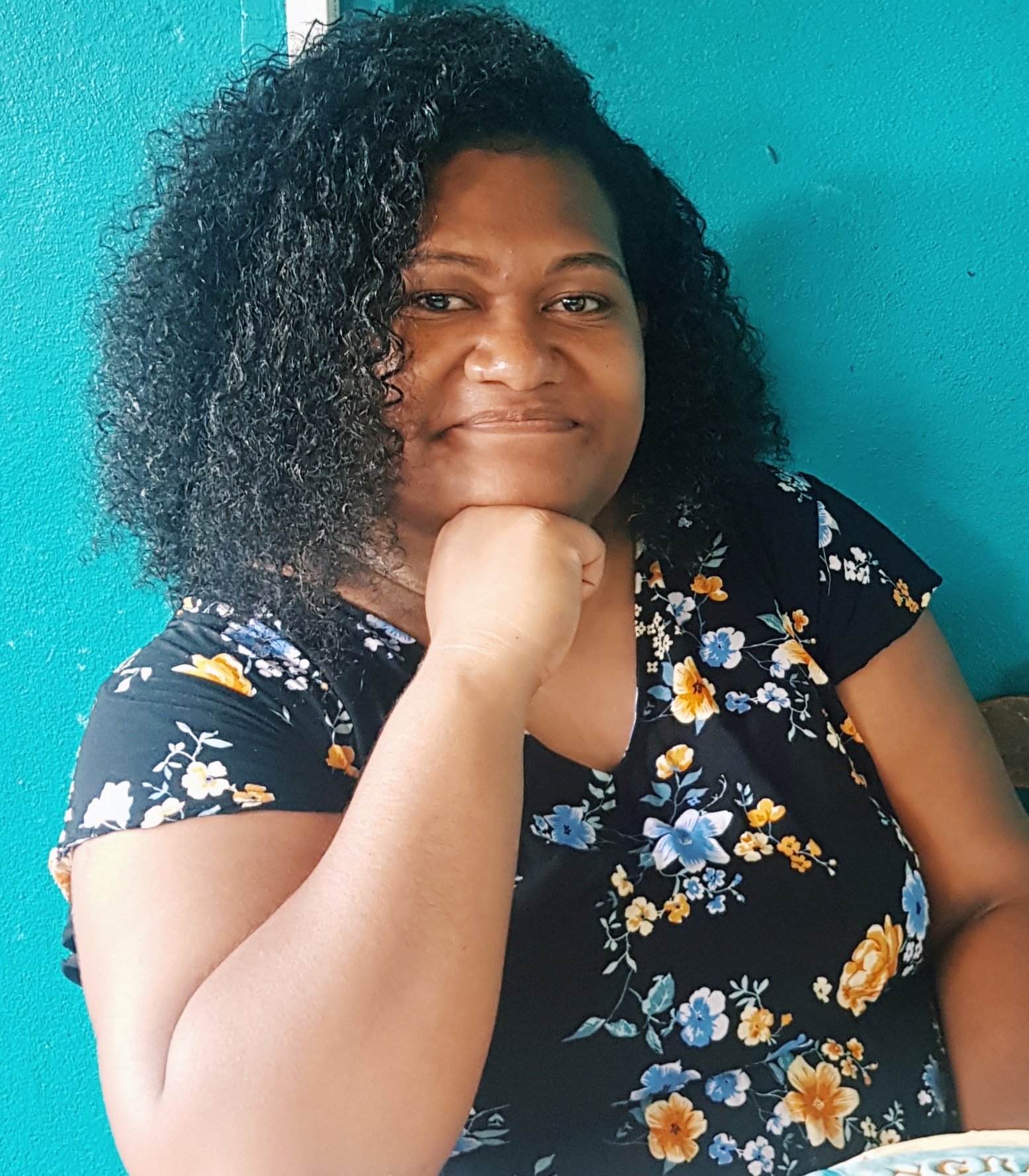
Bio
Bula vinaka from Fiji. I am Latileta and my field of study and career is in Public Health. I am particularly interested in prevention and would love to be more involved in wellness. The goal is to contribute to Fiji's wellness.Bio
NoneBio
NoneDescription
In October 2019 volunteers across Google joined with The Trevor Project, an LGBTQ+ youth crisis intervention and sucicide prevention non-profit, in a 6 month fellowship with the goal of ending LGBTQ+ youth suicide. In this talk we’ll review the collaboration process between the two organizations, building out new functions for The Trevor Project and lessons learned in creating a strong, collaborative and blended team.Speaker

Bio
Stephanie Guinosso, PhD, MPH, is a Senior Research Associate at ETR. Her research focuses on relationship-centered methods that address adverse childhood experiences, toxic stress and trauma and innovations that promote resiliency and healing among youth, families, and communities. She specializes in school-based trauma-informed approaches. Her current projects include providing training and technical assistance on the About Us Healthy Relationships Program for Vulnerable Youth, disseminating findings from ETR’s annual Kirby Summit, and integrating trauma-informed approaches into ETR’s curricula, trainings, and research. Dr. Guinosso is also a key member of ETR’s K12T9 Initiative, where she leads workshops on how K-12 schools can use a trauma-informed lens to bolster their responses to sexual and gender-based harassment.
BREAKOUT PANEL: Let’s Get Digital! Sex education through social media, digital storytelling, and film
12:15pm - 1:30pm PDT
Move over, boring reproductive anatomy worksheets, let’s get digital! In this panel, you’ll learn about exciting ways that young people and sexuality educators are working together to facilitate digital storytelling and creating apps, films, and a webseries to deliver honest and culturally relevant sex education. Watch film and webisode clips, and learn about how youth have created digital stories to increase condom use among their peers.
4 Subsessions
Description
With over 70% of the world’s youth online, it is not surprising that many are turning to digital spaces to seek information about sex and relationships. With the emergence of increasing apps, web pages, chat groups, social media sites and social media influencers, the sexuality education landscape is changing. Yet much remains unknown about opportunities and challenges for using digital spaces for delivering sexuality education. This presentation presents the findings of a desk-review summarizing the state of the evidence for delivering sexuality education through digital spaces, and uncovering risks and considerations. It also presents the results of research asking young people about their needs, wants and experiences when it comes to seeking information about sex and relationships in digital spaces. This presentation is of interest to those seeking to create platforms that are accurate, effective and evidence based, as well as responsive to what young people need.Speaker
Bio
Description
It's time for comprehensive sexuality education (CSE) to go beyond EBIs and step outside of the classroom! In 2018 the Institute of Women & Ethnic Studies rebranded its sexual health and positive youth development (PYD) programs under one umbrella, Catapult. In 2019 we released short films to introduce Catapult and its unique CSE pillars, which are Action (social justice), Education (sexual health), Feeling (emotional well-being) and Growth (positive youth development and goal-setting). In this session watch excerpts from the film and learn how we utilized a creative product to: 1) bring to life more static themes in the curriculum, as well as relevant issues we observed in the classroom; 2) tap into new networks and “influencers” through youth and staff involved in the production; and 3) provide multiple options to educators through a project that can be combined and separated in various ways for different audiences and amounts of time.Speaker
Bio
Ryan Drab is a Research Study Coordinator at the University of Pennsylvania's School of Nursing. Ryan is passionate about developing inclusive and accessible public health research practices that help center the needs of impacted communities, as well as identifying effective strategies for translating research and behavioral health theory into practice. Ryan received his MPH from the Gillings School of Global Public Health at the University of North Carolina at Chapel Hill in 2017 and his BA in Political Science from Seattle University in 2011.Description
The presenters will walk you through the social media component of Kaiser Permanente's STD prevention program. Watch the newest webisode “Homecoming Part 1”, participate in a "live feed" Q&A and learn how Instagram’s latest features are utilized to increase engagement.Speakers
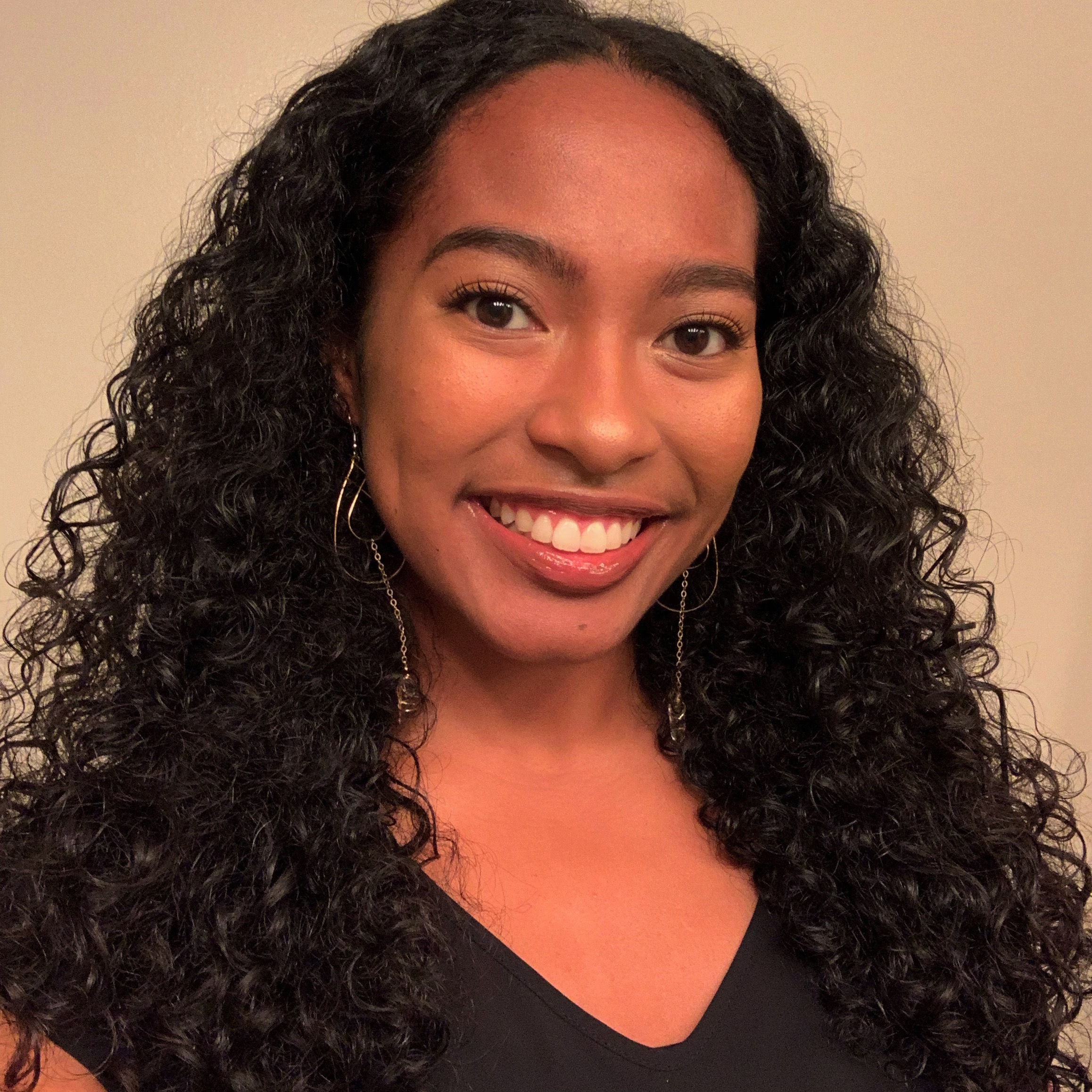
Bio
Toni is a public health professional passionate about improving health and health equity in her community. She graduated from University of California, Irvine with a Bachelor of Arts in Public Health and Global Cultures. She has worked in disease prevention and community outreach to increase access to resources to help individuals reach optimal health and well-being. She is graduating with her Masters of Public Health in Global Health Epidemiology at the George Washington University, Milken Institute School of Public Health. Prior to attending GW, Toni worked with the Centers for Disease Control doing STD/HIV Prevention in Guam. Toni is interested in the ways social, cultural, economic, and structural factors influence health in communities and addressing the root causes of health inequities, and particularly passionate about adolescent sexual health and women’s holistic wellness.Bio
Sofía is a nationally certified pharmacy technician and certified immunizer based in northern Virginia. They earned their BA in Biology from The Ohio State University in 2019. While in college, Sofía was an Undergraduate Research Fellow for the Wilbur V. Harlan Research Fellowship, Community Service Director of Alpha Psi Lambda National, Inc. (Alpha Chapter) and mentor for the Dr. James L. Moore III Scholars program. Sofía hopes to explore systems of community care in relation to immigration, disability, LGBTQ identities, and racial justice through a career based in public health.Description
According to a Youth Risk Behavior Survey, in 2011 Condom use amongst Adolescents increased from 46.2% to 60.2%. Despite this increase, Black males had a lower rate of condom use as compared to their white counterparts (62.4% vs 63.3%). Though the difference is minimal, Blacks in the United States have higher rates of sexually transmitted infections. These differences are in part due to systemic, structural, individual and partner-level factors that can impact access to condoms, condom negotiation, and condom use. This presentation will discuss the use of a community-based participatory approach to create digital stories and use social media engagement to raise awareness about condom use.Speaker
Bio
BREAKOUT PANEL: Nothing about us without us: Centering young people in public health product design
12:15pm - 1:30pm PDT
Creating appropriate, engaging, and informative materials for young people is a daunting task, but what better way to start than listening to them? How can continued feedback promote engagement and investment in educational media? In this session, learn how experts have incorporated the desires and opinions of young people in developing products, including a workshop on user testing. You will also hear how interaction and user feedback can be continuously incorporated into the design of webcomics, apps, and online group discussions!
3 Subsessions
Description
There are many period tracker apps on the market, but Planned Parenthood Federation of America’s app, Spot On, is different. This newly redesigned app is not just a period tracker, but is also a birth control tracker that helps users stay on top of their method, reproductive health educator, and health care provider connector, all from the expertise and care of Planned Parenthood. Come learn how Spot On was developed, how it’s being used, and how you can integrate what we’ve learned into your work.Speaker
Bio
Description
The young adult (YA) publishing genre is fast-growing yet is the most banned because it tackles some of the most challenging public health issues with a young audience (13 Reasons Why, anyone?). YA books and webcomics are unafraid to talk about sexual and reproductive health. How can we use not only YA fiction but interactive and immersive YA fiction to engage teenagers in these topics? This presentation will be using Novelly's interactive YA webcomic, Layla's Last Week, as an example. We will go over how the human-centered design shaped every aspect of Layla's Last Week, demo the webcomic, and present its impact on users.Speaker

Bio
Dr. Roopan Gill is Co-Founder and Executive Director of Vitala Global Foundation, a not-for-profit organization committed to addressing the most stigmatized issues in reproductive and sexual health. She is an obstetrician gynecologist with expertise in family planning and holds a Clinical Assistant Professorship at the University of Toronto. She currently advises as technical expert for Medecins Sans Frontieres (MSF), Doctors Without Borders and has worked as an emergency obstetrician gynecologist in Northern Nigeria and recently in Northern Yemen. Dr.Gill is a recipient of various grants as primary investigator including Grand Challenges Canada OPTions Grant, Saving Lives at Birth and Society for Family Planning. She has published in peer-reviewed journals on topics to better understand the challenges and needs of women and girls accessing reproductive and sexual healthcare needs. Her most recent work involves co-designing a digital tool with Venezuelan women to self-manage their sexual and reproductive health needs.Description
Audience response systems, AKA audience polling software, aren’t new but they are considerably underutilized. There are more applications of audience polling software than just aggregating answers to true-or-false questions or making a word cloud. What if we could use it to facilitate things far more constructive? We've developed an approach to youth group facilitation that uses audience response systems to foster social learning, psychoeducational processing, and the safe sharing of personal experiences. In any group-level setting, it can be a struggle to get past adolescents’ reluctance to participate openly and honestly when it comes to addressing topics around sex, substance use, sexual violence, racism, harassment, and health. This fact inhibits the quality and depth of a group-level examination of important topics. But not only can audience response systems increase the quality of participation, they elicit their peers' perspectives, not the facilitator’s.Speaker
Bio
INTERACTIVE WORKSHOP: A Game of Choice, Not Chance: Building an immersive decision-making tool for adolescents
12:15pm - 1:30pm PDT
A Game of Choice, Not Chance is a pilot program in India where researchers, behavior change experts, partnership professionals, and designers and developers are developing a role play scenario-based game targeted to girls 15-19 to simulate outcomes of decisions and choices through an avatar that could result in pregnancy, unwanted early marriage, or alternatively, the completion of education, fulfillment of career goals, and/or desired marriage and family. Participants in this session will gain an insiders perspective of the first three stages of a video game design and development process: the inquiry & discovery phase; and the pre-production and production phases and be able to assess whether or not elements of game play and game mechanics may be applied in their own work.
Speakers

Bio
Bio
BREAKOUT PANEL: From TikTok to teletherapy: Connection in the time of COVID-19
1:45pm - 3:00pm PDT
The COVID-19 global pandemic has caused enormous shifts in all aspects of daily life. It has created many challenges: to individuals and families directly affected by illness, isolation and economic hardship; in healthcare to safely manage increased demand amidst massive supply shortages; and to sex educators that had to pivot their work as schools shut down. Addressing COVID-19 and creating safety for our global community requires innovation, teamwork and fearlessness. In this panel, learn how web and game developers, strong youth networks, and youth-serving organizations leveraged existing resources and developed new tools to respond to COVID-19. Hear what they have learned in the pandemic so far, and how they envision handling this crisis moving forward.
5 Subsessions
Description
Field Ready’s response to COVID-19 was strikingly simple and effective. As supply chains broke down in early 2020 and travel ground to a halt, frontline workers needed PPE and youth unemployment spiraled. Field Ready immediately activated it’s network of FabLabs, makerspaces and communities in approximately 12 countries, to start making needed items locally. Mainly working directly with youths (18-35), Field Ready used digital tech to reach out, skill up and network youths globally in order to rapidly prototype, test and manufacture personal protective equipment (PPE) on a massive scale. Tech played a vital role in this emergency response in four key ways: crowdsourced forums for designs, digital fabrication tools, GIS mapping and remote management and training. Online design forums, such as humanitarianmaking.org were leveraged to crowdsource designs. Digital Fabrication tools enabled Field Ready technicians in Bosnia, Jordan and the UK to collaborate on designs in realtime in order to finalize designs of key PPE items. GIS mapping enabled youths to find spaces with the necessary equipment and networked local manufacturers with communities in need. Remote management and training for makerspaces and FabLabs, allowed them to make items in a safe and standard way. The impact of this initiative is more than the thousands of physical pieces of essential equipment produced. It is a connected, informed community of youths working together across the globe to meet the needs they saw in their communities.Speaker
Bio
Description
Throw out your dated ideas of sex education. Our program provides comprehensive sexual health education to middle and high school aged students. We teach a wide array of topics from family and life planning, what consent looks and sounds like, and signs of unhealthy relationships to human trafficking, accessing sexual health resources, and how to protect yourself against pregnancy and STI’s. Like many others we were stopped in our tracks as COVID took over. We were given a mere three weeks to transform our fully in person curriculum to an asynchronous online platform. This switch handed us the challenge of how to continue engagement with the students. This led us to the use of the new social media giant TikTok. Join us to learn how we incorporated this new platform into our education model, along with our successes and setbacks and everything in between.Speakers
Bio
Bio
Bio
Description
The COVID pandemic has changed the lives of everyone, including students who are now schooling at home with their families. In addition to this shift, many families, particularly those of minority groups, have faced significant and silent hardship as they shelter in place. Social determinants of health have taken an additional toll as the pandemic evolves. In March 2020, Reclaiming Futures (NGO) used their existing partnership with digital health company Tickit Health and relationships with school-based health support programs in three states (Vermont, Louisiana and Washington), to create a new tool, “Here to Help, Let’s Connect” to provide personalized support to families (parents/caregivers, and students) impacted by COVID-19 with issues they are facing. This innovative new tool focuses on general health (including exposure to COVID-19, loss of a loved one and access to health services), mental health, food and safety, and financial issues. As well as receiving tips and affirmation, the tool provides optional links to local support services and an opportunity to connect via telehealth to a counsellor for one-on-one support. Tickit has incorporated a Digital Empathy framework into its interactive digital tools with clear, accessible design that gives respondents agency in how they want to proceed and anonymity if desired. The uniquely client-centered tool also captures high quality actionable data to inform policy and allows organizations to triage and support through telehealth. Results of the June launch will be presented at the conference.Speakers
Bio
I am an Honors Fung Fellow at UC Berkeley's Fung Fellowship who is passionate about innovation in the health and tech space. I constantly challenge myself to imagine a world where health and wellbeing are not distributed on a social gradient and to channel my unique skills to create this world through technological innovation. As a Fellow, I have learned how to reclaim technology to serve communities that have traditionally been vulnerable to its problems using human-centered design, an iterative and empathetic approach to problem solving that puts users at the heart of the design process. I am a co-founder of Shotline: a community powered organization bridging the digital divide in public health by leveraging the tech skills of a widespread, virtual volunteer network to make public health services more accessible to communities facing technological barriers.Bio
I am an Honors Fung Fellow at UC Berkeley's Fung Fellowship who is passionate about innovation in the health and tech space. I constantly challenge myself to imagine a world where health and wellbeing are not distributed on a social gradient and to channel my unique skills to create this world through technological innovation. As a Fellow, I have learned how to reclaim technology to serve communities that have traditionally been vulnerable to its problems using human-centered design, an iterative and empathetic approach to problem solving that puts users at the heart of the design process. I am a co-founder of Shotline: a community powered organization bridging the digital divide in public health by leveraging the tech skills of a widespread, virtual volunteer network to make public health services more accessible to communities facing technological barriers.Description
The outbreak of COVID-19 has forced many organisations to adapt their way of working, not only due to the challenges of global lock-down measures, but also in the light of the vast spread of misinformation, rumours and fake news that endangers the health of (young) people globally. RNW Media is a non-profit organisation that builds digital communities for social change in restrictive settings. Through digital platforms like websites, Facebook, Twitter and WhatsApp, millions of young people access reliable information and engage in dialogue on their needs and aspirations. In the past few months, RNW Media’s programmes have gone through a fast adaptation process to be able to deliver reliable and fact-based information around COVID-19. To counter the spread of misinformation, RNW Media has started applying social listening as a methodology to identify and monitor emerging COVID-19 rumours on Twitter. The resulting insights provide input for interventions and campaigns aimed to raise awareness around the health risks that stem from misinformation on COVID-19. This presentation will dig deeper into the challenges and opportunities that COVID-19 presents to organisations that use technology to advance the health of young people around the world, and looks specifically at social listening as a promising methodology to support online interventions in engaging with young people across social media, responding to emerging trends, and influencing online dialogue.Speaker
Bio
Description
At GRID we create digital games offer a platform to educate, engage and empower our players in an effective manner. We believe in the saying “Tell me, & I will forget, show me, & I may remember, involve me, & I will understand” Confucius. The first version of CoronaCombat was created in 9 days using our internal funds and launched on April 10th. Since it's launch, the game has reached 1000 people with no marketing budget. CoronaCombat was translated into Urdu through a grant provided by American Pakistani Foundation. CoronaCombat has received immense attention since its launch, including a shout out by Chelsea Clinton on Twitter, as well as media coverage by ABC News in the United States. Stopping the spread of coronavirus demands that we meet people where they are: on their screens. As the COVID-19 pandemic continues, better awareness, through entertainment, could be a key strategy for successful intervention.Speaker
Bio
INTERACTIVE WORKSHOP: Social Technology Innovation Mini-Accelerator: Join Headstream Innovators to rapidly build tech solutions that support young people's social development and wellbeing
1:45pm - 3:00pm PDT
Growing up is tricky. In the last decade, technology has added an additional layer of complexity that teens, caring adults, and the creators of social technologies haven’t quite mastered. Over the last two years, Headstream, an innovation program, has been working to change that by working with teens, adolescent health experts, educators, investors and a cohort of 15 entrepreneurs to build social technologies that support meaningful relationships, help teens find support, and develop critical social and emotional skills. We are particularly focused on solutions that support the needs of LGBTQ+ teens, teens of color, and teen girls. Join us for a unique opportunity to work with a group of innovators to help shape their solutions for teen digital wellbeing. During this workshop, we will run a mini-accelerator where your expertise, ideas, and experience will help guide these innovators to build inclusive, impactful, engaging and evidence-backed social technologies.
Speakers

Bio
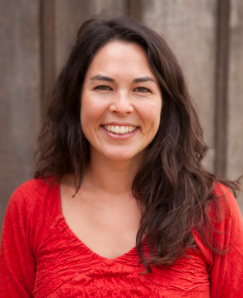
Bio
Bio
Bio
MINDFULNESS & MEDITATION SESSION
8:15am - 8:45pm PDT
Speaker

Bio
MORNING PLENARY: So You Want to Work With Youth?
9:00am - 10:30am PDT
3 Subsessions
Description
An exclusive launch of the Trauma-Informed Youth-Centered Health Design Framework (TIYCHD). With the growing popularity and utilization of design thinking approaches to address sensitive public health topics such as sexual and reproductive health, HIV, mental health, and violence, it is imperative that funders, designers and public health practitioners recognize and respond to the traumatic stress of all those who participate in the design process, including both youth and designers. We are excited to launch our framework, developed in partnership with our community, around Trauma-Informed Youth-Centered Health Design.Speakers

Bio
Kathryn (Kate) Barrett is a program officer with the Advance Family Planning (AFP) advocacy initiative within the Bill & Melinda Gates Institute for Population and Reproductive Health at the Johns Hopkins Bloomberg School of Public Health (JHSPH). For the past five years she has worked closely with partners in the Democratic Republic of the Congo and Francophone West Africa to implement AFP’s SMART advocacy approach to improve policies and funding for family planning. She holds a bachelor’s degree in International Relations and French from Goucher College and a master’s degree in Intercultural Communication from the University of Maryland Baltimore Country.Bio
Bio
Description
An exclusive preview of the launch of WHO Digital Targeted Client Communication Interventions for Adolescents/Youth on Sexual and Reproductive Health. Digital4youth – the technology changes, the objectives stay the same. What can we learn from the first generation of youth-centered digital health interventions and implementers? Join Lianne Gonsalves and Briana Lucido as they preview a framework and guidance.Speakers
Bio
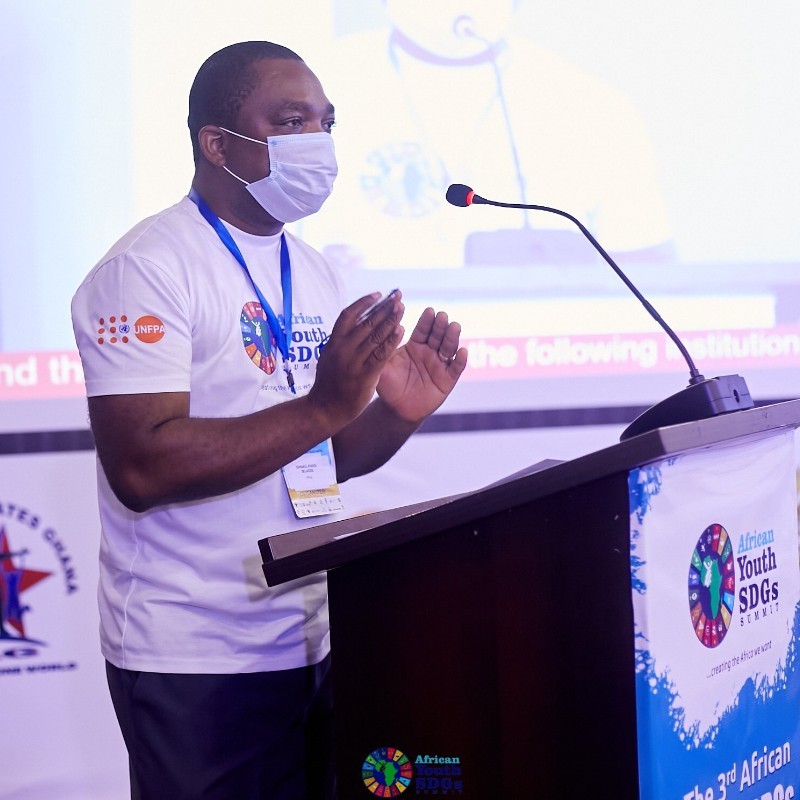
Bio
Ishmael Kwasi Selassie currently works at Planned Parenthood Association of Ghana (PPAG) as a Youth Programmes Manager in charge of the organization’s largest programme portfolio with several projects currently being implemented under his supervision. He leads one of three International Planned Parenthood Federation’s Centres of Excellence on Comprehensive Sexuality Education (CSE) sharing best practices and high impact strategies across the Federation. Ishmael led the work PPAG has undertaken in delivering CSE via WhatsApp during the global pandemic.Description
For the first time, our LIYT (Living in your Truth) youth grantees will present their innovative solutions for HIV prevention among vulnerable youth populations in the US.Speakers

Bio
Grace assists with the implementation and design of research across Hopelab’s products. As a recent Pitzer College graduate, holding a B.A. in Cognitive Science and Legal Studies, she is passionate about delving deep into psychological research that encourages and uplifts young people. Contextualizing her skills in cognition and research, she studied abroad in a variety of international locations which provided her with an enriching opportunity to work with children and adolescents from diverse backgrounds. In addition to traveling, Grace enjoys writing about social justice issues, hiking in beautiful places, and listening to stimulating podcasts.Bio
Bio
Bio
Bio
Bio
Bio
BREAKOUT PANEL: Lights, Camera, Activism! Media and meaningful youth engagement
10:45am - 12:00pm PDT
Young people’s voices, perspectives, and experiences matter. In this panel, you’ll hear about projects worldwide that amplify youth experiences of sexual and reproductive health through various types of media. See through the eyes of youth in foster care and justice-involved youth in a photovoice project, learn how storytelling is being used to improve sexual health, and meet some AMAZE-ing youth ambassadors who ensure online sexual and reproductive health content remains relevant to adolescents.
3 Subsessions
Description
Programs that serve youth can not be effectively implemented without the input from the community that they serve, i.e. young people. This presentation discusses the launch the AMAZE Youth Ambassador program that was established as part of the AMAZE project. During the presentation you'll hear first hand from our ambassadors and find out what this experience was like for them. The AMAZE Youth Ambassador program was launched in September 2019 and contained a diverse group of young people ages 10-16. During the year, ambassadors met on a monthly basis to provide feedback and ultimately help inform the direction of the AMAZE project. In order to ensure that AMAZE content continues to remain relevant to your most important audience - adolescents - we knew that we had to center the voices of young people and give them a seat at the table when making decisions about video and content creation.Speakers
Bio
Bio
Bio
Bio
Bio
Description
Merci mon héros (MMH) is a multi-media campaign created by young people, for young people and decision-makers, parents, partners, and others, who can support young people in their lives. Each episode features a short video / testimonial of a young person recounting a challenging time in their sexual and reproductive lives, when an “ally” (usually an adult) helped them. The campaign – disseminated via TV, radio, online and mobile media, and through in-person events – uses storytelling to increase empathy between generations, and address restrictive norms that prevent youth from accessing the sexual and reproductive health (SRH) information and services they need. Come learn about the campaign’s human-centered design inspiration, the MMH youth partnership model, plans to make this campaign to “go viral” across 10 francophone African countries, and how campaign impact will be measured via social listening and other innovative techniques.Speaker

Bio
Alexandra is a Project Associate within the Unit of ICT in Health Education at UNESCO IITE. She has 5 years of experience in coordination of digital sexuality education activities on HIV, SRHR, and violence prevention in EECA. Over the last years Alexandra has been supervising the full-cycle development of digital awareness raising campaigns addressing HIV, access to testing, and rights of people living with HIV. She’s particularly passionate about entertainment communications and within this strand of work supervised the launch of a full-length movie ‘II’ about HIV, LGBTQI+ youth and bullying as well as interactive Kyrgyz series ‘School elections’ about stigma and discrimination of young PLHIV. Alexandra’s portfolio also includes peer-to-peer online resources – websites and social media communities – on HIV and reproductive health in Armenia and Kyrgyzstan, where a youth editorial board system has been introduced to ensure adolescents’ meaningful engagement in health promotion.Description
Teens report spending hours a day on Instagram and are looking for ways to make that time meaningful. In a geographically diverse location like California, it can be difficult to bring together young people from around the state, especially considering the time and money needed to gather a group together. However, Instagram can be leveraged to create a space for authentic youth engagement that alleviates the need for travel. In October 2019, TeenSource launched a Digital Youth Advisory Board to bring together young people from throughout California to share their ideas and insights to inform our content development. Come learn how we developed this program, what we learned, and what the impact has been.Speakers
Bio
Bio
Bio
INTERACTIVE WORKSHOP: Teaching Sex Ed Online
10:45am - 12:00pm PDT
Are you teaching comprehensive sexuality education (CSE) online for the first time ever? You’re not alone. Many teachers and facilitators around the world are preparing and presenting CSE content to youth without substantial information, experience, or even research on how to do it. Come learn some of the emerging pedagogical best practices about how to take your sex ed program digital through new, creative ways to use the available technology, by modifying your face-to-face curricula into synchronous and asynchronous modalities, and keeping the energy, passion, and engagement that you were used to seeing in person emerge online.
Speaker
Bio
BREAKOUT PANEL: Tech to Advance Gender Equity: Preventing and Responding to Gender-Based Violence
12:15pm - 1:30pm PDT
Any response to gender-based violence (GBV) must be relevant, responsive, and accessible to the people most impacted. But limited access to technology and disconnection from support systems during COVID are creating additional challenges for individuals experiencing GBV. How can we leverage technology to reach people at risk of harm or harming others? Learn from global violence prevention advocates and researchers about how they use technology to prevent GBV among youth. Responsive to how individuals—in particular young women—access technology, the panelists in this session will share how they fight against GBV, and address new safety and ethical considerations imposed by the COVID-19 pandemic.
3 Subsessions
Description
Technology has become part of the lives of millions of people around the world.Practitioners and researchers on violence against women (VAW) have used online mobile applications (App.), podcasts, social media platforms and remote data collection methods to implement programmes or conduct research.SVRI has funded a number of app based projects working to improve responses and prevent VAW in low- and middle-income countries, including: mapping hotspots of harassment or violence through a smartphone app. in the Bus Rapid Transit system in Pakistan; developing an app. to provide survivors of sexual violence with information and access to services in Kyrgyzstan; and podcasts as a tool to prevent intimate partner violence in refugee camps in Ethiopia. And then came Covid 19…As reports of increasing levels of VAW under lockdown surfaced, programmes turned to using more technology. Researchers had to rapidly pivot data collection and methods. New technology and online remote data gathering methods for VAW, bring multiple ethical challenges and risks. Discussions on the ethical challenges and potential harm of online applications and remote data gathering need to be prioritised. We need to protect confidentiality and safety of survivors in settings where mobile phones are shared or where the violent partner checks the browsing history and sees information on services sites. The presentation will share information on our grant-making and promising practices in the field of ICT and VAW. Furthermore, we will reflect on the ethical and resource challenges and opportunities for increasing the use of technology to address VAW.Speakers
Bio
Bio
Description
ZonaSegura is a trauma-informed youth-centered innovative research study and mobile solution to address teen dating violence in Honduras. Led by the YTH Initiative of ETR, in partnership with the Public Health Institute’s GOJoven International Program and in-country partner Asociación GOJoven Honduras, this applied study and mobile solution aims to prevent teen dating violence (TDV) through provision of prevention information, healthy relationship education, and linkages to TDV services and resources using mobile technology. With nearly 90 percent of the Honduran population having access to at least one mobile phone, ZonaSegura leverages the high rates of mobile phone usage among young people ages 14-19 to support them in overcoming individual and structural barriers to access rights-based and gender-sensitive TDV prevention information and services.Speakers
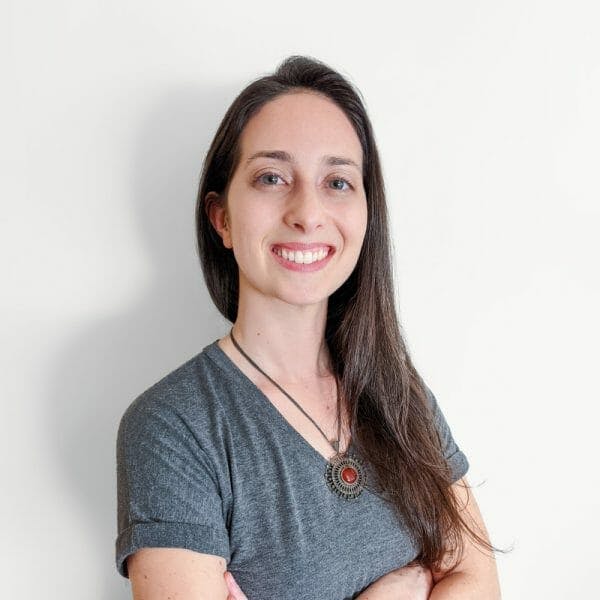
Bio
Arianna works on Hopelab’s research portfolio, helping coordinating efficacy studies that allow us to better understand how the design and technology products developed at Hopelab help improve standard care. She earned her MSW and her MSPH with an emphasis in Maternal-Child Health from the University of North Carolina at Chapel Hill. She is a Bay Area native and is happy to be back raising her family in the community she grew up in.Bio
Description
Cell-Ed is a radically accessible, scientifically-proven mobile learning solution proven effective in even the lowest-resourced settings - all accessible on a basic feature phone (no internet or data required). Cell-Ed reaches adults and youth around the world from students in rural Somaliland to Amazon factory workers in Mexico. In Eswatini (formerly Swaziland), Bantwana, World Education, and Cell-Ed are bringing comprehensive health and life skills education to girls on mobile phones with an integrated Gender Based Violence screening tool. Come learn how radically accessible mobile solutions can bridge address global health disparities. Worldwide women are 26% less likely than men to use mobile internet and in some countries the internet user gender gap exceeds 40%. Bridging the gender digital divide requires technology that can deliver to women and girls across contexts.Speakers
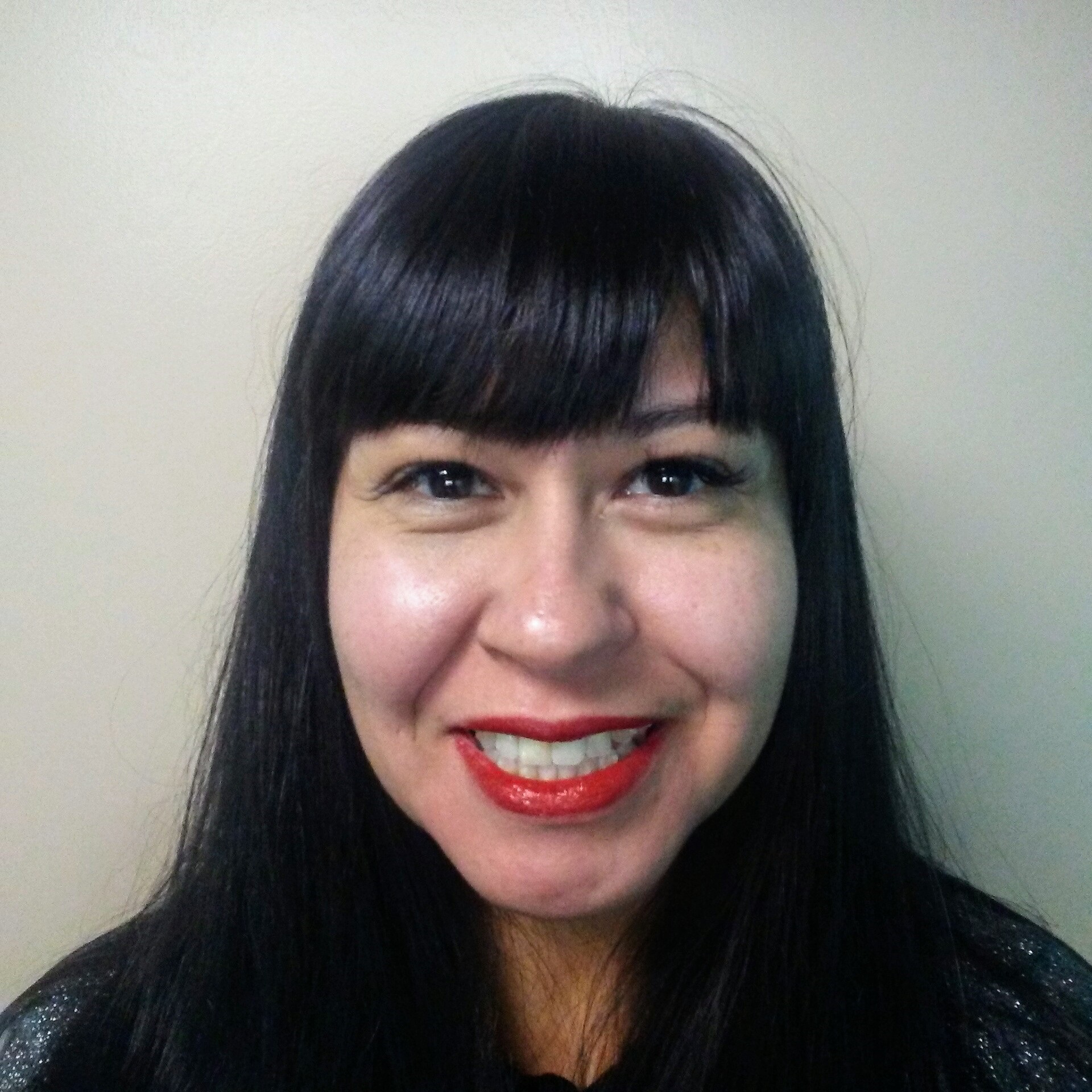
Bio
Violeta is a game designer, researcher, community organizer and Sexuality Educator. Violeta has a passion for working with underserved populations including foster youth, incarcerated populations, adolescent parents and Latinx communities. She is excited to share her expertise to teach the next generation through the Peer Health Education Program, where she began her work with Planned Parenthood. Violeta is a board member of the Northern California Association for Take Back the Night, an organization whose mission is to resist and end sexual, gender-based, and all forms of violence through community-led action. She holds a Master’s in Sexuality Studies and her MA thesis centered youth voices to create a porn literacy curriculum which aims to help youth critically analyze the messages in sexually explicit internet material. Violeta is leading the design of ¡Con Confianza! (With Trust and Confidence) the first-ever gamified mobile sex ed platform developed with and for Spanish-speaking students.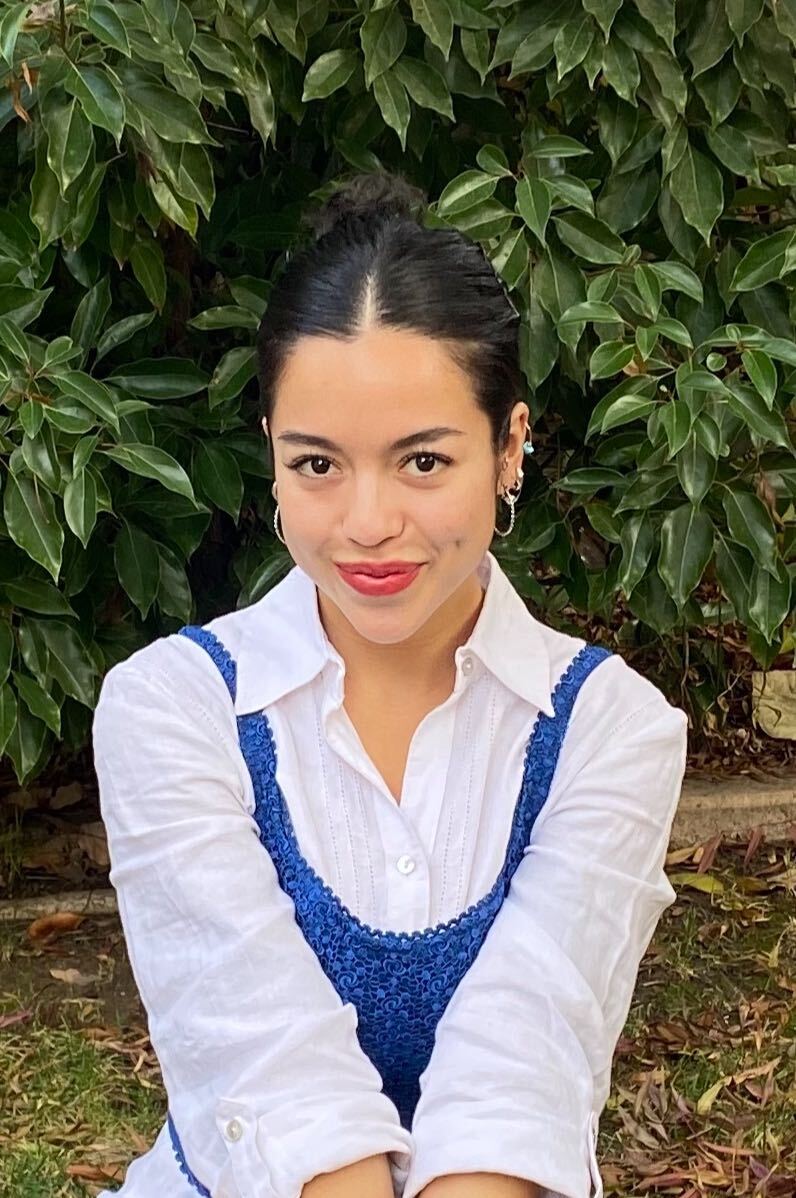
Bio
Mariah is a Health Educator and Digital Learning Creator with PPMM. She values creating safe and engaging learning environments for all folks to thrive, contribute and feel empowered. She accomplishes this by teaching through a trauma-informed lens and being intentional about the content she creates and shares with others. Mariah is joined by her colleagues on the Digital Learning team to center community and youth needs, invest in accessible design and inclusivity. Outside of work she shares sexual health info with young adults on her sex ed Instagram account, takes long walks and cares for her many house plants.
BREAKOUT PANEL: The revolution WILL be posted on Instagram Live: How youth are leading activist movements from the palm of their hands
12:15pm - 1:30pm PDT
In recent months, the nation has witnessed the passion and power of youth activism and organizing. This panel will provide background on pressing social issues such as gun violence and reproductive rights, and explore how young people are addressing them. You’ll hear how young people around the world are tackling these issues through interpersonal healing, fighting for better education on social services, and conducting peer-to-peer advocacy.
4 Subsessions
Description
Recently, in the 5 year New York State Health Prevention Agenda, violence for the first time was identified as a health issue. For decades communities of color have experienced trauma from violence, particularly gun violence. A huge part of creating non-violent, non-trauma environments/communities begins with conversations. The video will explore how therapeutic sessions with a health and wellness consultant from the company Compassion contribute to a holistic behavior change of what it means to have a healthy environment.Speakers

Bio
Varuni has a post-graduate in Advertising and Marketing Communications, along with a Master’s in Psychology. She comes with experience in the advertising industry and has been working as a digital and communications marketer in the development sector for over three years. She is also a Women Deliver Young Leader, Class of 2020 and a YOUNGA Youth Delegate 2021. At C3, she looks after digital communication and social media management.
Bio
Rakhi has a Masters in corporate brand management and joined the development sector eight years back. She has worked with many brands in the last 20 years in helping them in their brand building and marketing. At C3, Rakhi leads the Communications team and resource development.Description
In this session, participants will hear from a youth activist to gain a better understanding of the legal barriers that young people face when trying to prevent pregnancy in states with parental involvement laws for abortion and contraception. They will also learn about how Jane’s Due Process is supporting young people navigating these barriers and ensuring their reproductive freedom. Facilitators will present a live-demonstration of Jane’s Due Process’s helpline and educate participants on how to support young people who need to make an appointment for confidential family planning services. Facilitators will also provide information about judicial bypass for abortion, referral resources for teens who reside in contraceptive deserts, and how to safety plan with young people around sexual shame.Speaker
Bio
Description
Since its founding, our country has boasted of being the most free country in the world. Our nation highlights itself as a melting pot, a land of diversity and opportunity. But what happens to the parts of this country who are shoved into the shadows? This “melting pot” has turned into a powder keg that can only be disarmed through a united effort. Young people have the chance to create a country where everyone truly feels like they are apart of a progressive society. This session will go beyond the buzzwords and breakdown key legislation involving issues surrounding climate change, reproductive rights, racial equality and LGBTQ equality.Speaker
Bio
Rimjhim is the HCD Specialist at HCDExchange. Using a human centred design approach, she has led strategy and design projects primarily in the women's sexual and reproductive health, women’s livelihoods, and education domains. Through her experience in design studios in India, she has worked on HCD focussed projects for the Gates Foundation, Population Services International, Packard Foundation, and IPAS Development Foundation. She holds a Masters of Research in Communication Design from the Royal College of Art, London.Description
According to the UNFPA, if the COVID-19 pandemic continues for 6 months, an estimated 47 million women in 114 low-income and middle-income countries could lose access to modern contraceptives, contributing to an additional 7 million unintended pregnancies. The Challenge Initiative (TCI) is helping local governments in East Africa leverage both traditional and new media to reach communities with integrated COVID-19 and contraceptive messages. TCI scales its high-impact adolescent and youth sexual and reproductive health (AYSRH) approaches directly through local government structures. A key intervention that TCI encourages local governments to adopt is youth engagement—forging ties between health departments and young people who know the pulse of their community and how best to reach their peers (particularly through digital means). At the onset of the pandemic, TCI worked with local governments to activate its network of young changemakers—known as TCI Youth Champions—to ensure their peers do not lose access to contraceptives during lockdown. Given current restrictions on mobility, TCI Youth Champions used radio, social media and WhatsApp groups to share information on where young people can go to receive quality contraceptive care and dispel any inaccurate information about COVID-19. In the County of Nairobi, members of the Youth Advisory Council received short-term contraceptive methods to distribute to their peers and participated in radio shows to spread helpful information.Speakers

Bio
As Chief Creative and Programmes Officer at Girl Effect, Jonathan is responsible for leading a global team that brings together experts across a diverse range of expertise, including scriptwriting, data science, social behaviour change communication, digital safeguarding and design. Leading our Impact, Programmes and Create functions, Jonathan works to foster collaboration across disciplines and countries to create brands and media products girls love, from serialised radio dramas to chatbots. With a background in digital marketing and design, Jonathan has spent the last fifteen years finding creative ways to use digital technologies to reach, engage and empower marginalised communities in Africa and Asia. Before joining Girl Effect, he worked with a wide range of both private-sector and non-profit organisations, including Diageo, Unilever, Save the Children, Brac, UNICEF, UNFPA, Facebook and the Ford Foundation, launching large-scale digital experiences and platforms available in more than 40 countries.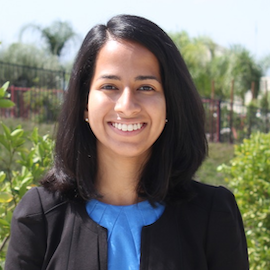
Bio
Nisha Deolalikar leads health programs at Facebook, where she develops cross-cutting initiatives to support global health organizations to use the platform for health impact. Prior to Facebook, Nisha was a director at an NYC-based consulting firm, Global Health Strategies, where she designed campaigns to move the needle on issues like health systems strengthening, access to medicines and HIV-related law reform. She also focused on building public-private partnerships across tech companies, UN agencies, civil society and governments to improve health outcomes. Nisha started her career in international development, working with nonprofits in India and Nepal on climate, education and human rights issues. She also later held research fellowships at the University of Bergen, Norway, where she focused on topics in global health ethics, and at the U.S. Department of Labor. Nisha holds a Bachelor’s degree from Harvard University and a Master’s degree from University College London.
BREAKOUT PANEL: How to use digital marketing effectively without Siri as your spy
12:15pm - 1:30pm PDT
You want your health messages to reach youth where they are, but the world of social media is vast and its users all have unique interests and needs! How can you design and target ads to have the biggest impact? How do user preferences impact whether your message is being received? Learn from the pros about promoting health through digital marketing on social media, dating apps and search engines. All three panelists have studied different sites to understand how best to market their health promotion materials and are ready to share their wisdom with you!
3 Subsessions
Description
Have you ever had an ad rejected from Facebook when you were trying to share sexual health information, like where to get PrEP? This session is designed to share information about how we can all improve our experience of buying ads, from saving money to getting better click-throughs to understanding why our ad might have been rejected and how to appeal it. You will get straightforward recommendations of best practices as well as exploration into the murky areas of retargeting (we’ve all experienced getting ads based on our recent search history, right?). When can and should this practice be used to improve our ability to connect youth to important health information or services?\nWe will share practical experiences (getting an ad rejected, reading metrics reports) that you can use in your everyday work.Speakers

Bio
Latanya Mapp Frett is President and CEO of Global Fund for Women and serves on the Board of Directors for Global Fund for Women and Global Fund for Women UK. As a feminist fund, Global Fund for Women offers flexible support to a diverse group of partners – more than 5,000 groups across 175 countries so far – to create meaningful change that will last beyond our lifetimes. Previously, she was the Executive Director of Planned Parenthood Global, the international arm of Planned Parenthood Federation of America, with regional and country offices in Africa and Latin America. She quadrupled the size of the program in four years to become one of the most innovative and sustainable global health organizations in the field.
Bio
Vignetta Charles, PhD, is Chief Executive Officer at ETR. Prior to her appointment as CEO, Dr. Charles was Chief Science Officer at ETR–focused on unifying and translating ETR’s science-based approaches to training and research. Her research emphasis is on behavioral health related to the intersection of HIV/AIDS, sexual health and mental health. She came to ETR from AIDS United, where she served as Senior Vice President, guiding strategic programming for the organization, garnering public and private resources for programs, leading efforts to measure and document program outcomes, and developing an expanded portfolio on the translation of science to community. Prior to her work at AIDS United, Dr. Charles developed and rigorously evaluated innovative, theory- and evidence-based sexual and reproductive health and HIV prevention programs.Speaker
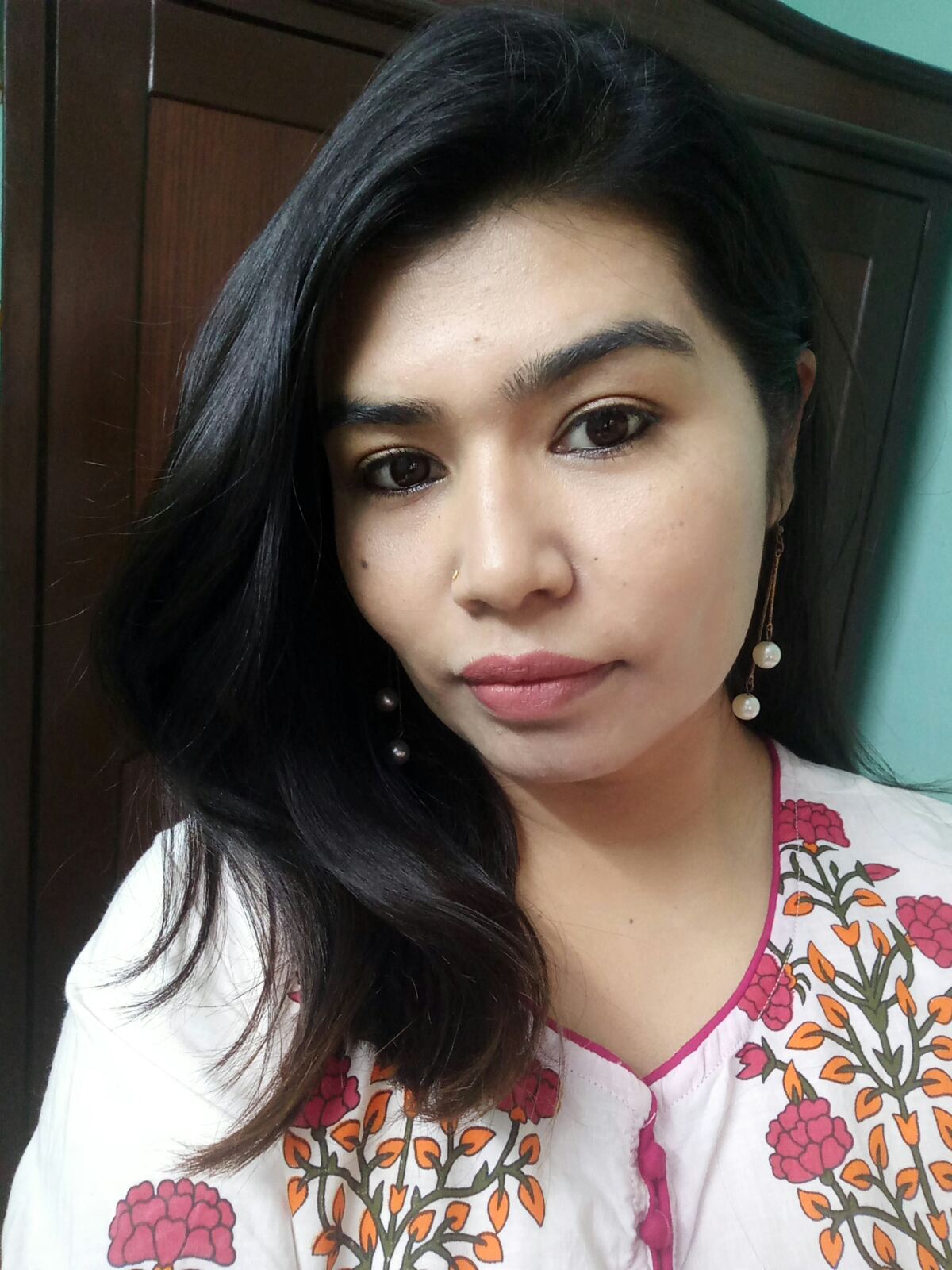
Bio
I am a public health professional currently working in the sexual and reproductive health right (SRHR) sector. My current work is related to women health rights and adolescent sexual and reproductive health rights. I aspire to become SRHR expert in Nepal. Since, Nepal being low and middle income country, there is huge scarcity of data and evidence. Thus, my interest is to do research and generate evidence in SRHR, so that I can advocate and design program based on evidence.Description
Did that ad really matter? Did your last 10 social media posts and articles actually get the ATTENTION they deserved? These are the questions that deserve answers because valuable time and money is being spent. This session is all about finding and quantifying the sign to noise in ads and digital messaging based on real-world work and data. Because your message only matters if people hear it...Speaker

Bio
Chris Wilson is a South Los Angeles native who has spent more than 15 years working in sexual and public health. He currently serves as the Director, Digital Learning on the Peer Health Exchange Programs and Strategic Learning team and leads the content development for Peer Health Exchange’s digital programming which aims to reach young people outside of the classroom. He has spent more than a decade serving, educating, and advocating for Queer, BIPOC, and HIV positive youth around the country through varies roles. Chris graduated from Wiley College with a B.A in Sociology, and transferred from Southern New Hampshire University, to earn his Master of Public Health from UCLA
INTERACTIVE WORKSHOP: How to Make Your EBI Webby! A Terrible Title to Mean, “Ways to Adapt Evidence-based Interventions for A Digital Landscape.”
12:15pm - 1:30pm PDT
You can update your evidence-based programming for a digital landscape! The principles of a number of EBIs can easily be fulfilled through media development activities such as film shoots, recording and broadcasting role model stories, collecting formative data online, and creating strong user-generated digital content. These activities perform the same functions detailed in formal CDC guidance around documenting and promoting community members' thoughts, beliefs, and behaviors as they relate to the "healthy behavior" a program seeks to foster. Intervention delivery methods such as outreach and printed materials are the more obvious outdated mechanisms ripe for digital adaptations, but other aspects, such as translating the underlying behavioral science, require a bit more understanding. We’ll provide you with guidance and turn-key materials that will allow you to go back to your agency poised to bring your programming up to date in ways that funders can easily understand and sanction.
Speaker
Bio
NETWORKING SESSION: Gen Z Representation: How to get young people at the forefront of your movement
1:45pm - 3:00pm PDT
Our program will provide youth and adult professionals with an opportunity to collaborate and discuss allyship in the age of social media and Activism. Various youth presenters from The SASHA (students against sexual harassment and assault) Initiative will share their stories surrounding their own activism work and how technology/social media have influenced their work as activists and as sex educators. After the presentation, students will present a step-by-step guide on how to effectively support young people to bring about positive social change (ie the does and don’ts of being an ally to youth people.) Then the discussion will fold into a Q&A with the audience and the program will wrap up with a networking session where specifically youth and adults can collaborate in order to significantly amplify the work of young activists moving forward.
Speaker
.jpg)
Bio
BREAKOUT PANEL: Communication, Consent, and Confidence: Programs to promote healthy relationships for young people
1:45pm - 3:00pm PDT
We want a world where all sex is consensual and all relationships are healthy, but how do we get there? One of the first steps is to push through the awkwardness and normalize having conversations with friends, family, and peers about what safer sex and healthy relationships actually look like. How can friends build skills to let each other know when they spot a relationship red flag? How can young people navigate unrealistic messages portrayed by pornography? And how might a parent discuss sex and healthy relationships with their teen who has an intellectual or developmental disability? Learn from professionals who have been working with youth and adults to answer these questions and more, to ensure a future with safer sex and healthy relationships for all!
3 Subsessions
Description
Join One Love as the look to start a relationship revolution. In this session, you will see how One Love's bridged technology and conversation to shift thinking around relationship health and how we can all ultimately love better. Together, we will explore the difference between healthy and unhealthy relationship behaviors as well as discuss the way friends and peers can play a role in sparking this conversation when unhealthy and abusive behaviors appear in their own lives. Just by joining you are helping One Love further their mission and create a world full of healthier relationships.Speaker
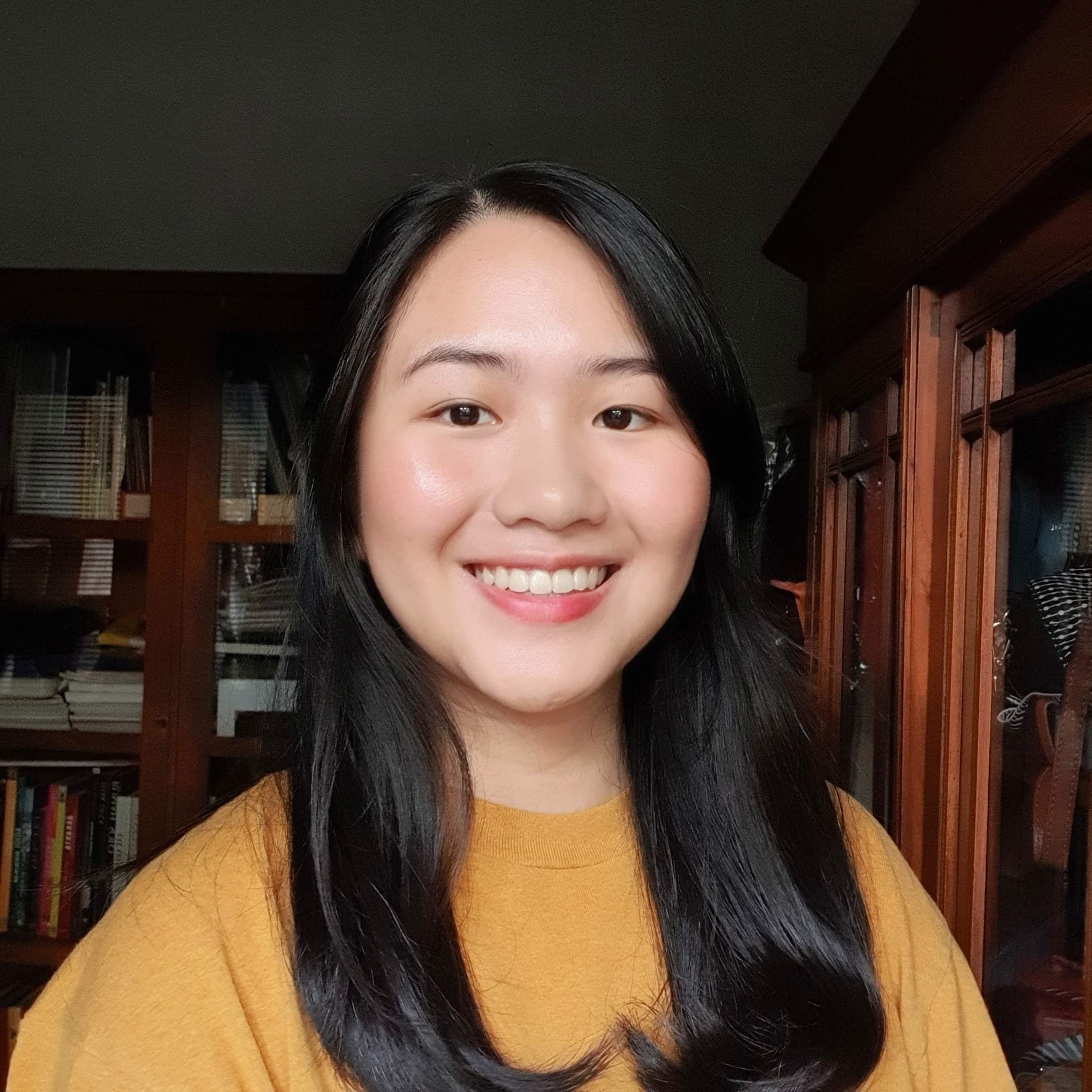
Bio
Having been front and center in utilizing digital technology to help fulfill Indonesian youth's sexual and reproductive health and rights (SRHR) since 2017, Neira's expertise lies at the intersection of youth, SRHR and tech. Through her experiences with UNFPA Indonesia and Headquarters, co-founding a youth-led organization Tabu.id, and serving as a content consultant for UNAIDS' HIV chatbot as well as Johns Hopkins Center for Communication Programs' youth platform, she has been able to successfully leverage digital platforms to disseminate SRHR information and scale-up demand for SRHR services among more than 100,000 youth. Particularly with UNFPA, her work cuts across a plethora of levels, from conducting research on digital SRHR content, building and managing a Community of Practice of digital SRHR content creators, to providing technical assistance to government and other partners in order to improve the quality of digital youth-targeted SRHR content.Description
Over the past decade or so, pornography has become both more mainstream and more hardcore. For young people growing up in this era of ever-new and accessible technology it is almost impossible to avoid exposure to pornography. Consumption – particularly for young men – has become normalised. And the ways young people understand and experience gender and sex are being influenced by what they – or their partners or peers – observe in porn, with serious implications for their capacity to negotiate free and full consent, for mutual respect, for sexual health, and for gender equality. Addressing pornography’s influence is a challenging task, but ignoring it is no longer an option. Porn isn’t going to go away. So what do we need to understand about porn and its impacts? And how can we support young people to develop a sexuality that is safe, respectful, and fully consenting in an age of pornography?Speaker
Bio
Description
While parents of neuro-typical teens often feel challenged regarding talking with their teens about sex, parents of youth with intellectual and developmental disabilities(IDD)face more challenges. We've heard, "What if they ask me about porn?" "My child isn't ready to learn about sex yet," and "How do I explain it so they understand?" Learn how mobile streaming MicroSkills video models can improve the skills and comfort of parents communicating with their special needs teens about sex and healthy relationships. See several short Microskills videos, including those ranked most highly by parents. Findings from two recent studies will be discussed: one study working with a national cohort of parents of teens on the autism spectrum, and the other of Michigan parents of teens with cognitive impairment.Speakers
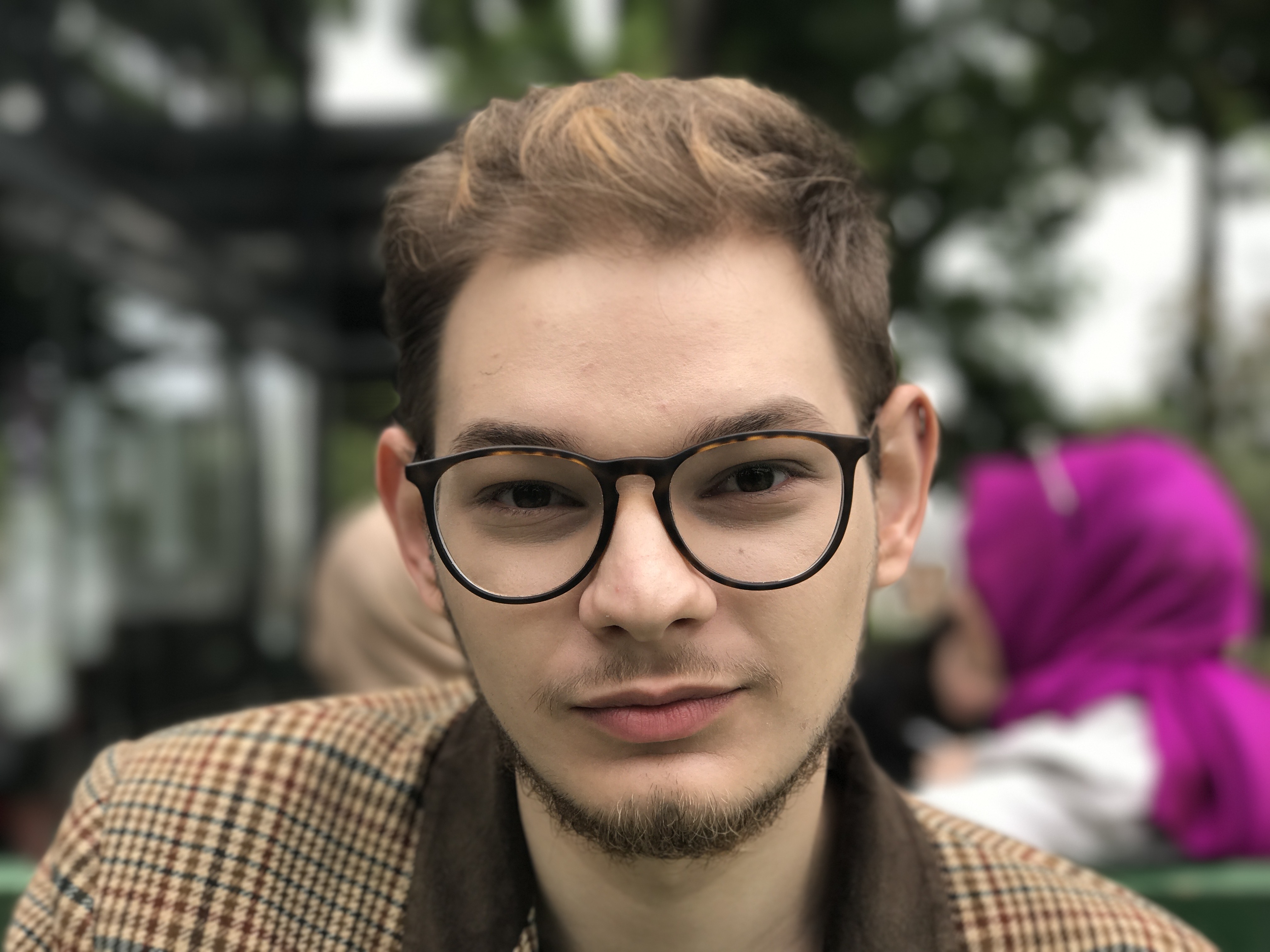
Bio
He completed his undergraduate education at Istanbul Bilgi University in 2021. Having a major in Sociology and a double major in Advertising, Yiğit took the first step into his professional life with tabukamu. Throughout his education life, he worked voluntarily in various institutions in the field of human rights and took part in the animal rights movement. He is a sexual and reproductive health peer educator in Y-PEER Turkey. As a youth activist, he become a YTH Initiative Design Challenge Winner in UNESCO Switched On Symposium 2020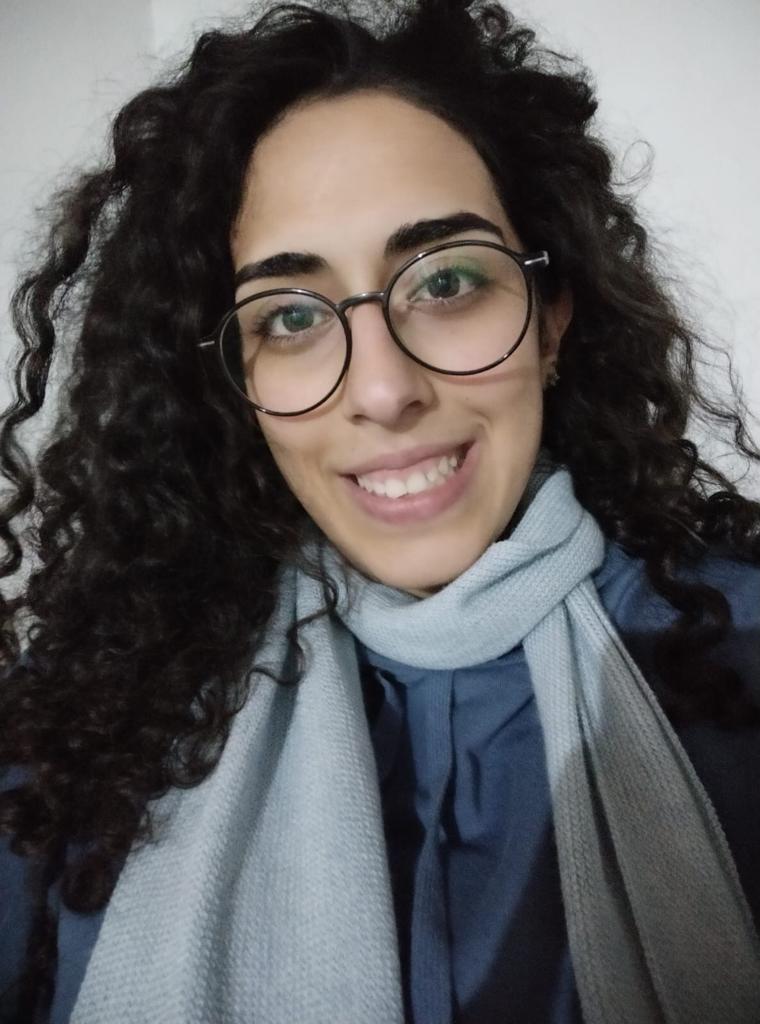
Bio
She graduated from Yeditepe University with a major degree from Guidance and Psychological Counseling major and Sociology minor. She continues her education life, which she said she had enough of, with a Sociology master’s degree at Yıldız Technical University and at the same time she is working as a career counselor. She is having the last years of her youth in quarantine with her cat and dear friends from tabukamu.
NETWORKING SESSION: Café, Charla y COVID-19 (in Spanish)
7:45am - 8:45am PDT
La primera sesión regional de redes virtuales para l@s que trabajan en la región de América Latina para discutir el estado de la salud sexual y reproductiva de los adolescentes durante la pandemia de COVID-19. El objetivo de la sesión es escuchar a los financiadores y las organizaciones comunitarias sobre el estado de la salud de los adolescentes en la región de América Latina, especialmente durante la época de COVID-19, y explorar soluciones y asociaciones a través de un lente tecnológico.La sesión está patrocinada por la Fundación Summit y le presenta en colaboración con la Organización Panamericana de la Salud (OPS).
BREAKOUT PANEL: Taboo who?! Breaking down sexual health stigma around the world
9:00am - 10:15am PDT
We need multiple approaches to sexual and reproductive health that validate the unique cultural experiences of young people across the globe. Strategies and approaches that work in one region’s cultural context are unlikely to work in another. How do you learn about puberty if there is a cultural taboo against talking about sex? How can girls safely and openly talk about sex and HIV, and create content that is relevant to them while COVID-19 physically separates them from their peers? In this panel, you’ll hear about portable, digital, and relatable solutions to reduce stigma and remove barriers to sexual and reproductive health education in India, Colombia, Kenya and the Caribbean.
4 Subsessions
Description
Talking about sex is a taboo in India, come and find out how Love Matters India is engaging with adolescents on this very taboo topic with the help of an augmented reality app. We are making sex education interesting and engaging for adolescents so they are encouraged to take the initiative to further educate themselves and take informed decisions about their sexual health and well-being. This app features interesting and relatable animated characters “Ësty” and “Testy” who are providing sexual education comprehensively in a fun and blush-free manner. This app correlates and engages with an existing commonplace school textbook, and allow students/adolescents to scan certain sections to reveal important omitted information. Come and meet Esty and Testy - your companions in understanding the difficult issues around puberty and adolescence.Speaker
Bio
Description
Girls Out Loud is a safe online space for girls to discuss key gender issues. In a private Facebook group moderated by Plan, girls are asking questions and discussing topics such as self-image, gender-based violence, teenage pregnancy, abortion and LGBT rights. The project started in Colombia as a prototype, piloted and implemented during 2018. In 2019 was scaled to Senegal, Guatemala, DominicanRepublic and UK. 12 more countries in different regions are starting the process now. With the social gathering restrictions and closed schools all around the world, the traditional safe spaces for girls and adolescent girls are disappearing, also the spaces where they can interact between them have dramatically reduced. But, in G.O.L., girls find a safe space where they can ask questions related to the pandemic, where they receive accurate information and exchange experiences during the quarantine time among them. For us, as organization G.O.L. is an opportunity to continue community engagement, providing a space where girls can generate content, and understanding how COVID-19 is affecting their lives. “I am feeling that my health is being damaged it is so difficult to sleep during this time, sometimes it is 2 am and I cannot fall asleep” 17y.o. Colombia. “G.O.L. has helped me a lot during this quarantine, especially with the information because I do not watch any news. It is helping me to share my experience during this time with friends. It helps me to feel less overwhelmed” 19y.o.., ColombiaSpeaker
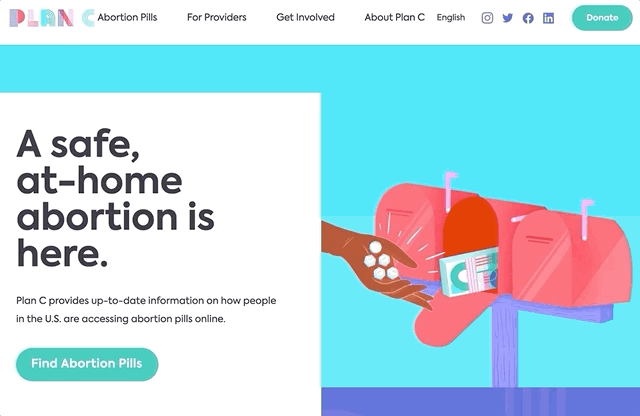
Bio
Plan C (plancpills.org) is an evidence-based advocacy campaign for abortion pill access in the US: providing research-driven information on abortion pills, educating the public on where they’re found and how they’re used for a safe home abortion, and incubating new initiatives that disrupt old barriers to access.Description
"How can I know if I’m pregnant? I’m pregnant and I don’t want to. It is true that the pill causes weight gain? Can I get HIV having oral sex? Why does my penis hurt when I pee? My condom broke! I forgot to take my pill, what can I do?" Schools and health services have the responsibility to guarantee youth right to sexual education. However, in Latin America and the Caribbean, young people have access to accurate and reliable information on sexual and reproductive health is limited. In this scenario, we created VAMOS. It is an effort to use technology to offer young people from the region an alternative to make informed decisions about their health and their lives.Speaker
Bio
Description
Since 2016, Pamoja and the Henry Jackson Foundation, with PEPFAR funding, is implementing the DREAMS initiative which, to date, enrolled over 3600 AGYWs who are receiving social asset building and other behavioral and biomedical interventions, through community girls-only safe spaces. The Empower® portable HIV literacy kit is a digital library that includes one trainer tablet with a stylus, ten tablets for participants, a charging unit, a wireless projector, and solar panels. The tablets are loaded with relevant materials on HIV/AIDS, STIs, sexual and reproductive health, economic strengthening, and Kenya primary and secondary school materials. The goal of this intervention is to improve HIV awareness and technological literacy among AGYWs through weekly sessions over three-months. In each session, AGYWs are taken through the reproductive health modules, then allowed to browse and engage with the media content on HIV, STI and contraceptive and discuss.Speakers
Bio
Donald is a CSE Digital Consultant for the UNESCO Regional Office for Southern Africa. He designs, develops and supports online Comprehensive Sexuality Education learning experiences including courses, web portals and other educational application.Bio
Bio
INTERACTIVE WORKSHOP: How to Develop Digital Citizenship Dispositions
9:00am - 10:15am PDT
While there is no doubt that digital media and technology hold great promise for transforming education, enhancing learning, and even simplifying our lives, complicated and pernicious issues affecting the health and wellbeing of young people—and our very democracy—are also at play. New challenges ranging from hate speech, fake news, and online harassment to digital addiction, rising anxiety levels, and privacy concerns abound. Beyond cases characterized by aggression and cruelty, broader concerns about digital life and youth wellbeing are salient today, particularly as we think about young people’s behavior on social media and its impact on their mental health. It is evident that digital citizenship education is critical for young people today more than ever. Come to this session to learn more about Common Sense Education's free K-12 Digital Citizenship Curriculum and how you can weave in its' promising pedagogies into your work with youth!
Speakers
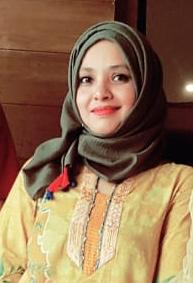
Bio

Bio
BREAKOUT PANEL: Tech 4 LGBTQ Youth: Building community and improving health
10:30am - 11:45am PDT
Young LGBTQ people face unique forms of discrimination that can create barriers to accessing medical care. Our presenters are working with gender- and sexual-minority youth to counteract these conditions by creating online spaces that increase access to community, improve health information and services, and decrease isolation. Learn about an innovative platform that creates safe spaces for transgender and non-binary youth to build community and share support. You’ll also hear about several different virtual interventions to increase PrEP use and reduce HIV risk for LGBTQ youth and young adults.
4 Subsessions
Description
SMART and Keep It Up! are exemplars of eHealth HIV prevention interventions that can provide adolescent and young men who have sex with men (MSM and YMSM, respectively) with culturally competent information, motivation, and skills to make informed sexual health decisions. Keep It Up! is a CDC “best evidence” HIV risk reduction intervention for YMSM aged 18–29 and the first eHealth HIV prevention program to show significant effects on biomedical outcomes. SMART is one of the first eHealth sexual health education programs for AMSM aged 13–18, currently being evaluated in a clinical trial. We will discuss the potential for online programs like these to reach underserved and marginalized young populations, as well as the implementation and sustainability challenges of such interventions. Our lessons learned developing, evaluating, and implementing these programs can inform future developers and implementers.Speaker
Bio
Description
Gender Spectrum is currently one of the only organizations offering online video, audio and chat groups for transgender and non-binary youth. By utilizing technology we believe we can create radically accessible safe spaces for gender expansive youth to decrease feelings of isolation, depression, social anxiety and so much more. Join this presentation to learn more about working within a non-binary framework to support the overall wellness of gender-expansive youth through technology! We’ll also talk about how we’ve expanded this model to support professionals and parents who want to better support a gender expansive loved one. This presentation will include engaging videos and audience participation! Come prepared to learn a little more about gender, how to create gender inclusive online spaces, and the pros and cons of working in the always rapidly changing online world!Speaker

Bio
Jahnavi Sharma is a young and dynamic Sexual and Reproductive Health and Rights professional in India. Leading a project on Comprehensive Sexuality Education at Love Matters India/ Development Consortium and works as a Project Manager with the organization. Has seven years of experience in the development sector and development communication field. A recent Rise Up Youth Champions Initiative (YCI) fellow and one of the youngest leader selected for the Aritra Leadership Accelerator Programme by Indian Institute of Management Bangalore, Phicus Social Solutions and Dr. Reddy’s Foundation. She is working towards normalizing conversations regarding sex for adolescents and young people. She engages with young peer educators in building their capacities to help them grow as youth champions on-ground in Bihar, India. She is passionate about advancing reproductive justice discourse on gender and sexuality issues pertaining to young people, including the right of all people to have access to safe abortion.Description
Young MSM (men who have sex with men) and transgender women of color are disproportionately impacted by HIV, yet less likely to receive PrEP (HIV pre-exposure prophylaxis). Telehealth interventions may help surmount some of the barriers to PrEP inherent in traditional clinic-based models, removing practical hurdles to accessing the health care system such as transportation and scheduling difficulties and lessening the impact of stigma by allowing participants to access PrEP more privately. The PrEPTECH 2 Study is a randomized-controlled trial testing PrEPTECH, an online telehealth intervention that incorporates synchronous and asynchronous telehealth consultations, a text- and email-based reminder system, home laboratory testing, and online pharmacy services. The PrEPTECH research team will recruit 400 transgender women and MSM at high risk for HIV ages 15-27 in four sites in California and Florida through online advertising and on-the-ground community partners.Speakers

Bio
As a founding member and the leader of Lyft’s social impact team, Lisa has spearheaded the creation, launch, and growth of LyftUp — a suite of initiatives focused on increasing transportation access and equity for low-income communities. She also leads Lyft’s company-wide Environmental Social & Governance vision and strategy. Previously, she advised hundreds of companies on social impact strategy through her roles at Pledge 1% & DoSomething Strategic. In her spare time, Lisa can be found exploring Northern California’s many state and national parks with her husband and dog.Bio
Description
Transgender and nonbinary (hereafter: trans) youth engage in higher rates of HIV risk behaviors than their cisgender peers, with HIV transmission rates higher among trans women and trans men who have sex with men. Despite notable resiliency, trans youth engagement in routine health care is often lower. The TechStep study is designed to address these risk behaviors and provide relevant HIV prevention information through text messaging and an interactive webapp, both of which may also be augmented with online eCoaching. Community feedback from trans youth through youth advisory boards, focus groups, and session mocks was essential in the development of the three technology-facilitated interventions. Engagement of trans youth in the design of each intervention was critical in tailoring the content to meet their needs and produce culturally responsive HIV prevention information. Lessons learned from the community-engaged approach describe how the feedback from trans youth translated into specific design and content.Speakers
Bio
Barry is a Professor of Pediatrics at the University of Vermont College of Medicine and an Attending and Teaching physician in the Pediatric Inpatient and Critical Care Division at the Vermont’s Children’s Hospital at the University of Vermont Medical Center. He is also the Director of the Global Health and Humanitarian Opportunity Program at the University of Vermont. He has over 25 years of experience as a Pediatrician in the areas of emergency, critical and acute care medicine, with an additional 30 years of experience as a basic, clinical and translational research scientist. He has participated in a numerous research, medical global health and humanitarian projects, as well as capacity building and disaster relief missions in Uganda, Ethiopia, Peru, Jamaica, Bhutan, South Africa, Ecuador, Philippines, Congo, Cameroon, Togo, Benin, Bangladesh and Burkina Faso.
Bio
Lonnie is the President and Co-founder of Healthy Learners in Zambia. Prior to Healthy Learners, Lonnie served as a Global Health Corps fellow with the Centre for Infectious Research in Zambia. Lonnie is a Truman Scholar, Rainer Arnhold Fellow and Draper Richards Kaplan Social Entrepreneur. Lonnie studied Biochemistry at Bowdoin College and International Health and Tropical Medicine from the University of Oxford
INTERACTIVE WORKSHOP: Show Me The Money: How to Raise Money for Your Tech Project
10:30am - 11:45am PDT
Traditional nonprofit funding is not geared towards building tech products, which can make it hard to find money for an innovative idea. In this session, we’ll cover the landscape of possible fundraising options, give you a framework for how to search for additional opportunities, and help you figure out which types of funding might be right for what you want to build. Go get that money!
Speakers

Bio
.jpg)
Bio
Bio
BREAKOUT PANEL: Hang tough, don’t puff: Uplifting youth response to commercial tobacco and cannabis
12:00pm - 1:15pm PDT
As technology advances, so do Big Tobacco’s strategies for its relentless targeting of youth, particularly young Black, Indigenous, People of Color (BIPOC). How can youth and their adult allies respond to this targeting and improve health literacy skills to address commercial tobacco, cannabis legalization, and vaping? Join Jayvonne Hines, student leader alum and youth advocate with SBH Health, and representatives from the Drug Policy Alliance and the Tribal Communities Coordinating Center about how they uplift teens to think critically about tobacco and cannabis advertising and fight against Big Tobacco’s contributions to health disparities among their communities. Finally, hear how these organizations are shifting their approaches during a pandemic that affects our lung health and disproportionately impacts BIPOC.
3 Subsessions
Description
California’s Clean Air Project’s (CCAP) works to further educate on and reduce the detrimental effects of secondhand smoke within California tribal communities. CCAP created a three-part series course for tribal youth in understanding how the tobacco industry is strategically targeting their communities, and how they can successfully organize to combat these targeting tactics. The series was broken down by: “Sacred Tobacco,” “Commercial Tobacco Use and Health Disparities,” and the final series as, “Strategizing the Change.” Before the shelter in place order, the staff was set to present to the Chukchansi Youth Council. With the emergence of Coronavirus (COVID-19) the country has been impacted in unprecedented ways. Recognizing that all tribes within the country are facing challenges at disproportionately higher rates, CCAP returned to the drawing boards. The team was faced with the question of how to launch this three-part series virtually, and more importantly, how to successfully shed light on the health disparities tribal communities are facing with COVID-19. After connecting with tribal partners throughout California and learning more about the unique challenges the tribes are dealing with, the three-part series was adapted for not only a virtual course but as well as into a handbook. Both course versions act as an adaptable guide for tribes who are working within tobacco control and are interested in creating youth coalitions advocating against tobacco.Speakers
Headshot%20(1).jpg)
Bio
Dr Sandy Penn Whitehouse, is a Clinical Associate Professor at University of University of British Columbia, Vancouver Canada. Her past work as Medical Director of the Pediatric Emergency Dept., and Provincial Lead for Youth Transition provided a strong foundation in healthcare services leadership. Sandy’s passion to improve outcomes led her to Co-Found Tickit Health, a digital health company with the goal to improve communication between patients and providers, particularly for vulnerable populations. Tickit is based on three pillars; usable, accessible design to engage all people as partners in care, easy to use live data for health care providers and organizations, and flexible, simple integration into healthcare systems .Bio
Evan Elkin is Executive Director of Reclaiming Futures – a national public health organization focused on improving equity and justice in youth serving systems including schools, child welfare and juvenile justice systems. He is a nationally respected innovator and leader in the field of juvenile justice reform, adolescent and family mental health, substance use treatment and youth development. Originally trained as a psychologist at New York University and Columbia University’s Department of Child Psychiatry, and the director of the Department of Planning and Innovation at the Vera Institute of Justice in NYC. Evan is the model developer for the acclaimed Adolescent Portable Therapy treatment model which was a finalist for the Harvard Innovations in Government Award. He has worked extensively in tribal and non-tribal youth justice settings, schools and in child welfare settings helping to advance public health, equity and social justice through innovation and the development of evidence-based practices.Description
Cannabis use and legalization and vaping are highly political and polarizing topics. But controversial subjects are often an opportunity to teach and highlight practical skills that students will need to navigate the real world. In this interactive workshop, participants will engage with the Drug Policy Alliance's Safety First: Real Drug Education for Teens curriculum – designed for 9th and 10th grade students – to learn a novel approach to teaching about cannabis and harm reduction strategies for cannabis use. Using various facts and myths about cannabis, Safety First encourages students to hone their ability to evaluate the credibility of online sources, a Common Core tested skill and critical health literacy skill.Speaker

Bio
Maria’s primary focus at Hopelab is to advocate a youthful and authentic voice while giving teens and young adults a platform to share their health stories. Combining her experience in social media strategy and content creation, Maria manages the Hopelab’s social media presence by working closely with project teams and partner organizations. Earning her B.A. in Strategic and Corporate Communication from Chapman University, she plays a dynamic role in monitoring in-house events as well as external conferences. Maria was born and raised in the Bay Area thrilled to be empowering young people.Description
Tobacco is a social justice topic and a silent killer to our nation! Big Tobacco companies target African American males more than anyone else in America. Our video walks with Jayvonne Hines, a Bronx-New York City Housing Authority (NYCHA) resident and African American teen sharing interesting facts about the negative influences of tobacco in the Bronx. Jayvonne shares his expertise in what he has learned and how he will not be a replacement smoker, but a finisher!Speakers
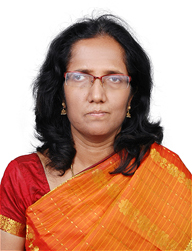
Bio
Mercy Manoranjini is Lead – Knowledge Management in Centre for Catalyzing Change. Graduated from Christian Medical College Vellore, with a Master's degree in Bio-Statistics. I have more than 20 years of experience working in the field of girls' and women's Health and Nutrition. Started my career as a Bio-statistician in Christian Medical College, Vellore. The presenter has 20 years of experience narrating data-driven stories in the field of Health and Nutrition for Women and Girls. Well-versed with research methodologies and worked for various projects funded by USAID, world bank, BMGF, and DFID. She has published peer-reviewed 15 papers and presented various national and global forums. She has experience developing large-scale interactive knowledge management dashboards. Some of the sample questions are What are the innovations in the project, how did you coordinate with Government and Funding agency, how are you planning to scale up and sustain the project.Bio
Bio
BREAKOUT PANEL: Staying safe online: Helping young people navigate the beauty and the dangers of the World Wide Web
12:00pm - 1:15pm PDT
Over the past two decades, the internet and its associated technologies have provided an incredible platform to facilitate youth activism, increase engagement, and improve health. But despite everything positive that the internet offers, it also comes with constantly emerging safety threats that not all youth are prepared to navigate. In this panel, you’ll learn from experts at USAID and internet safety advocates about current risks of technology-enabled abuse, and how to educate young people and adults to think critically about what they see and what they post online.
4 Subsessions
Description
Over the past two decades, the lowering costs and greater ubiquity of technology are bringing accompanying digital assets, including a range of social media products, closer to and within reach of most communities and individual households in developing countries around the world. This will open up a new set of opportunities for some of the most vulnerable children. However, along with the net positives, there is also the potential danger associated with unfiltered and inappropriate content and exploitative individuals reaching these vulnerable populations, particularly children. In USAID’s new Digital Strategy, the double edge sword of benefits and challenges are highlighted, including the prominent role governments, community intermediaries, and household leads should play to prevent digital harm for children and youth.Speaker

Bio
Dr. Titilayo Shodiya received her Bachelor’s degree in Materials Science and Engineering with a concentration in Electronic and Photonic Materials and a minor in Mathematics from The Pennsylvania State University in 2010. She received her Master’s in Electrical and Computer Engineering in 2012 and Ph.D. in Mechanical Engineering and Materials Science in 2015 from Duke University. In 2017, she started her Post-Doc in the Chemistry department at the University of Michigan – Ann Arbor. Titi is currently the Deputy Quality Manager at The National Institute of Standards and Technology (NIST) supporting NIST’s mission to promote U.S. innovation and industrial competitiveness by advancing measurement science, standards, and technology. Throughout her career, Titi has been an active mentor and started initiatives to encourage women and underrepresented minorities to pursue STEM degrees and careers.Description
Cloudflare’s mission is to help build a better internet. We’re working with healthcare organizations to deliver secure, fast, and reliable digital experiences. From healthcare institutions to digital health startups, healthcare providers are shifting towards strengthening their digital presence. They are not only hosting and sharing health records online, but are also increasingly servicing their patients virtually. The reliance on digital applications to maximize patient care is rising with each passing day. This shift has also increased the stakes for data security — protecting sensitive patient data in an industry that faces the strictest security regulations is not an easy task. Data security not only requires protection from external malicious actors, but also from possible internal breaches. This session will focus on what the current cyber security threat landscape looks like, and key recommendations for organizations building their security strategy.Speaker
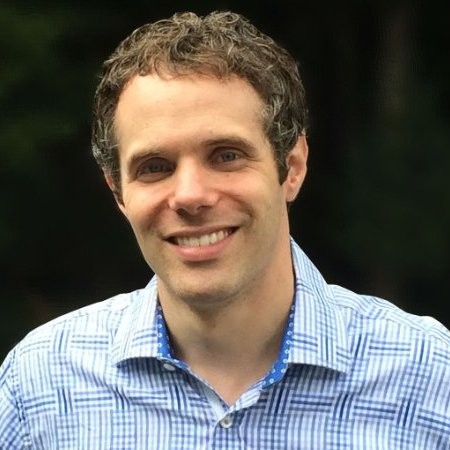
Bio
Michael Sullivan works on the Facebook Marketing Science team. He supports Government, Politics and Nonprofit partners globally by helping them evaluate and improve the effectiveness of their advertising using data and analytics. Most recently, he’s focused on COVID-19 media and helping partners get their messages out. Mike lives outside New York City with his partner and 2 kids.Description
Thorn is prioritizing research and campaigns that place how kids experience the issue of child sexual abuse material - seeking it out or producing it - at the heart of the conversation. This session will explore how we’re learning directly from youth and caregivers about this issue, and how we’re developing programming that both arms kids with the knowledge to recognize and resist digital threats, and activates protective systems within their online and offline communities.Speaker
Bio
Description
Artificial intelligence benefits our lives in countless ways, but it has also given rise to a new form of online sexual violence targeting women. Digital impersonation – headlined by deepfakes – leverages deep neural networks to make it appear a victim was in, for example, a pornographic video that they were not in fact in. This makes everyone a potential victim of nonconsensual pornography. And it is just one of the many ways in which people can be harmed, with new advances in facial reenactment and voice cloning evolving in real time. This breakout explores the technologies behind digital impersonation, why traditional tech solutions and laws struggle to address this unique form of violence and how women are paying the price.Speaker
Bio
BREAKOUT PANEL: Getting to Goal Mama: Co-Creating a Digital Tool to Improve Health and Well-Being of Young Moms
12:00pm - 1:15pm PDT
How can a proven, national public health program use technology to stay relevant and amplify its impact on young people? In 2016, Nurse-Family Partnership (NFP), an evidence-based nurse home visiting program serving young, first-time moms living in vulnerable circumstances, teamed up with Hopelab and Ayogo to answer this question. Enter Goal Mama – a digital goal setting platform that amplifies the human connection between a first-time mom and nurse, building self-efficacy and empowering moms to take charge of their health and be advocates for themselves. Join speakers from Nurse-Family Partnership and Hopelab as we share the story of how we designed, built and launched a digital tool that was relevant and responsive to the needs of today’s young moms. You’ll hear examples of how the product has been introduced to the field, hurdles we encountered, lessons learned, and stories of resilience and hope we heard along the way.
Speakers
Bio
Bio
INTERACTIVE WORKSHOP: Not Your Mother's Sex Ed - Apples and Oranges? Peaches and Eggplants? Collaborations in the World of Sexual Health
12:00pm - 1:15pm PDT
Tired of those cheesy sexual health videos that no matter what seem like they were created in the 80’s. Want your students to tune in instead of out, see themselves represented in the curriculum you are using and feel like the videos actually speak to their life experiences. Come learn about creating collaborative content that is effective, people are interested in, want to watch, and speak to people’s lives. Participants will collaborate with a group to come up with their own video pitch! We will walk participants through a lightning version of the steps to our collaborations process to come up with bios, scenarios, and then a pitch that portrays the youth in their communities.
Speakers
Bio
Bio
CLOSING PLENARY
1:30pm - 3:00pm PDT
4 Subsessions
Speaker
Bio
Description
This closing keynote will discuss how technology funders can be more responsive to community needs and be better partners to nonprofit efforts, particularly in our current global pandemic.Speaker
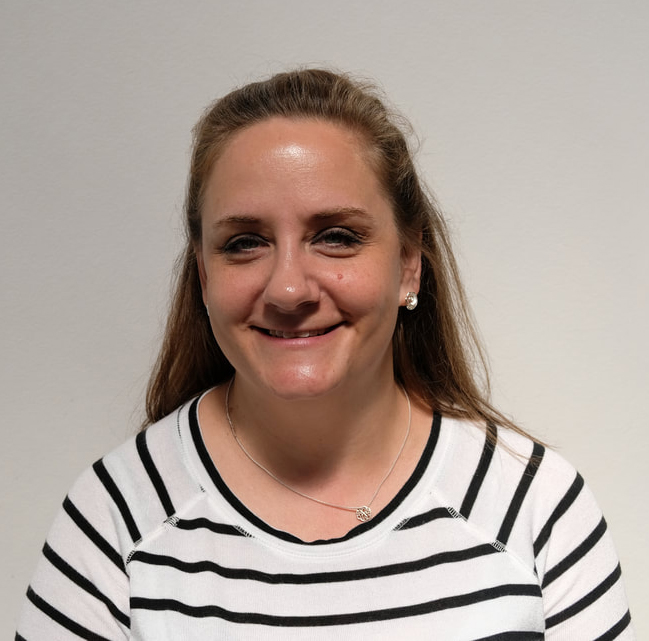
Bio
Heather is the Executive Director of Male Contraceptive Initiative. With over a decade of experience in contraceptive development, she brings a nuanced viewpoint on how contraception has shaped global public health outcomes and how a male contraceptive could do the same. At MCI she develops innovative programs to impact male contraceptive research, development, and advocacy.Description
Miriam will lead a conversation with Gwyn and Ulili to share with the YTH Live community about what they are seeing as changes in the sector, how their respective agencies are responding to the pandemic and best practices for nonprofits to engage with funders.Speakers
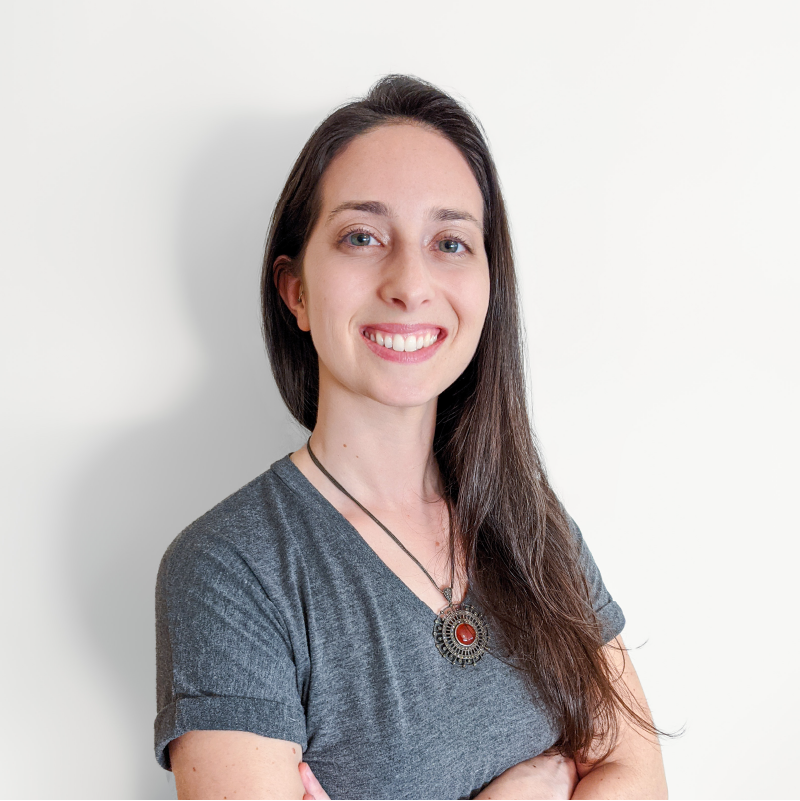
Bio
Arianna works on Hopelab’s research portfolio, helping coordinating efficacy studies that allow us to better understand how the design and technology products developed at Hopelab help improve standard care. She earned her MSW and her MSPH with an emphasis in Maternal-Child Health from the University of North Carolina at Chapel Hill. She is a Bay Area native and is happy to be back raising her family in the community she grew up in.Bio
Speakers
.jpg)
Bio
Alex Bedder (He/Him) is the Content Lead on PPFA’s Digital Product Lab, focusing on the content strategy for both the sex ed chat bot, Roo, and the period tracking app, Spot On. Before joining PPFA, he worked across tech and media at companies like Betaworks and Gizmodo Media Group, crafting different voices and narratives. Across his career he has gotten pretty comfortable with a character limit: he used write weather forecasts in 280 characters or less, and now he does the same with sexual and reproductive health. When he’s not working on Roo you can find Alex in the kitchen cooking, catching up on TV (there’s too much of it!) or performing. He is based in Brooklyn, NY.Bio
Tuneme.org: A Digital health solution as an HIV prevention strategy designed with young people for young people.
Africa is close to its billionth mobile connection, with many mobile users under the age of 30. Therefore, it is critical for HIV prevention programmes to include mobile technology as part of their strategies to engage, inform and link young people with accurate information and services. TuneMe.org harnessed that opportunity and after four years of implementation has been evaluated to assess the impact of the life of young people in the East and Southern Africa Region. The presentation will share the experience of developing a digital health solution on SRHR using a human centered approach and will highlight selected findings from the evaluation.
Speaker
Bio
An Online Interactive Youth-Centered Dashboard for Updating the Public on COVID-19 Outbreak Data in Real Time.
Objective To develop an online youth-centered dashboard that informs the public of COVID-19 outbreaks data in the world and Africa with an emphasis on Ghana. Materials and Methods Laravel, a PHP framework is used for the development. Yajra Laravel Data table is used to get the data from the database, aggregates and visualizes it through an interactive, online dashboard. Results The dashboard can be accessed at http://covid19.koachie.org/. It displays COVID-19 data from every country in the world, Africa and the sixteen (16) regions in Ghana. Features include quick facts, statistics that ranks the worst affected areas and auto-generating graphs and map that depict temporal changes in cases, recoveries, serious, and deaths. Conclusions This online dashboard can serve as a resource to the youth and the public to stay informed on the COVID-19 outbreak in their country and the regions in Ghana.
Speaker
.png)
Bio
WhatsApp Support Groups for Adolescent Mothers in the Dominican Republic
Group messaging over IP messaging platforms such as WhatsApp can be used to improve health in resource-limited settings, especially for youth. A youth-friendly clinic in the Dominican Republic used WhatsApp's Group Chat feature to create digital support groups for adolescent mothers; a place where they could receive information about maternal and neonatal health, ask questions to clinic staff, and share experiences with other new moms. The intervention aimed to increase health knowledge, self-determination, access to social support, use of postpartum family planning, and attendance at well-child appointments. The project was well received and had a positive impact on health knowledge, perceptions of social support, and health behaviors of the participants. IP messaging should be further explored as a way to reach and support youth with important health information and other resources.
Speaker
Bio
Centering Youth Voices in SRH Programs during COVID-19 in South Los Angeles
In this session, Essential Access Health’s Adolescent Health Coordinator will share best practice recommendations for meaningful youth engagement, focusing on her work with a cohort of 13 youth interns leading planning efforts for Spring into Love, a sexual + reproductive health-focused youth conference in South Los Angeles. We will emphasize the importance of working with youth to identify topics to integrate into SRH messaging, including educational, vocational, and mental health resources, as well as centering youths’ intersectional identities. Participants will learn about specific tools and resources utilized during the COVID pandemic to meaningfully engage youth interns and community members virtually. Developing safe spaces in partnership with youth positively impacts their lives; this session will discuss strategies for future programs to uplift youth voices and support them utilizing a holistic approach to validate their experiences.
Speaker
Bio
Digital citizenship under lockdown: promoting healthy use of technology for adolescents growing-up in Perú during COVID-19
Transitions, an ongoing collaboration with Innova Schools in Perú, offers a unique opportunity to examine variations in how youth have used digital media to adapt to the conditions of COVID-19, providing new insights into sources of resilience and vulnerability in a globalized digital age. UC Berkeley’s Adolescent Research Collaborative, Innova Schools, and Common Sense Education have been partnering since 2018 to promote digital citizenship among adolescents growing up in Latin America through a culturally appropriate school curriculum informed by developmental science. COVID-19 forced the Transitions team to pivot and redesign the curricula to promote wellbeing during a crisis, highlighting the role technology plays while under lockdown. This project presents a case study for the cultural adaptations necessary to implement Digital Citizenship lessons in the context of youth growing up in urban settings in Perú, in times of remote instruction and social isolation. During May 2020, we worked with 27 000 4th-11th grade students in urban, low income settings across Perú. Our lessons promoted (1) Managing uncertainty, (2) Emotions, (3) Relationships, (4) Healthy habits, (5) Sleep, (6) Healthy technology use. We surveyed youth about their experience during the COVID-19 crisis. We explored the digital lives of Peruvian youth, the challenges and opportunities introduced by the lockdown in the context of adolescent engagement with digital media. By collecting more data at the intersection of culture and development–in peace and crisis– we can better support wellbeing as youth adapt to the challenges and opportunities of digital media use.
Speaker
Bio
Effectiveness of high quality COVID-19 mobile phone applications in combating the novel coronavirus pandemic
This study assessed the effectiveness of COVID-19 mobile phone applications in combating the coronavirus pandemic. The role of technology in health is inevitable in the 21st century. Youth rely on mobile technology to get vital information about coronavirus. Several apps have been developed to create awareness on COVID-19 and help stop the spread. A significant number of mobile apps on COVID-19 are of low quality. From the findings in this study, it is recommended that developers of COVID-19 mobile phone applications develop apps of higher quality in order to educate people and help stop the spread of the novel virus.
Speakers

Bio
Bio
Virtual Peer Education: An example of digital youth peer education and SRHR informative sessions from Turkey
COVID-19 affected each field including peer education sessions we organize face to face but the need of getting informed about sexuality and heathy behavior have not ended. Considering the impossibility of organizing peer education sessions again in the upcoming 6 months to 1 year, we decided to make all the sessions online. It seemed almost impossible to adapt physical peer education sessions to an online platform due to the concern of safety, absense of feeling of collectiveness, absense of interactivity and hardness of attracting attention. 4 experienced peer educators from our network started working on the legal requirements with the help of legal consulars, reviewed all online tools created for education or networking and reviewed all the sexual and reproductive health information available to create an updated tool. With the technical support of UNFPA Turkey Office, we happily created an online version for peer education sessions. We started organizing digital sessions and we keep getting very positive feedback from the participants. They say they would feel ashamed face to face but through online tools they feel enough confidence to ask questions and discuss issues. At the same time, we improved a website called bizimaramizda.org in which right information is provided to young people online with more innovative techniques. The website is supporting the digital peer education session in terms of providing additional information and possibility of asking questions anonymously to the peer trainers available on the website.
Speaker

Bio
Using Mobile Technology to Reduce Inequities for Children with Disabilities in Kenya During COVID-19
During COVID-19 nonprofit Kupenda for the Children in the US, and Kuhenza for the Children in Kenya, have adapted their disability advocacy efforts remotely. Through the creation of a mobile health application, local community leaders can continue their advocacy efforts and monitor and assess the care given to children with disabilities. Not only does the application continue advocacy, but also serves as a tool to educate families about COVID-19. As a result, community leaders were able to advocate for 278 new children within one month and are better able to connect family and their children with supportive services during the global pandemic.
Speakers
Bio
Bio
Bio
Bio
Transitioning to Online Mentoring and Groups During COVID-19: Stories of Engagement and Success
Fostering Healthy Futures (FHF) is an innovative, preventive intervention designed to promote prosocial development and reduce problem behaviors in youth who have been maltreated and have child welfare involvement. FHF employs a positive youth development (PYD) approach consisting of one-on-one mentoring and skills training. PYD programs reject the deficit approach to working with youth and assume that youth have strengths and resources that can be fostered and place emphasis on long-term health and well-being. Although FHF was designed to be delivered in person, and is built on a foundation of developing strong connections between youth who typically feel isolated under non-pandemic circumstances, COVID-19 pushed FHF to be nimble and flexible and bring all aspects of programming online. Perhaps most notably, FHF was able to remain a constant for our youth during this uncertain time; technology allowed us to continue programming without disruption. Furthermore, adapting to the online forum allowed us to think about future innovations to our programming and how we might be able to serve more youth outside our geographical area. Mentors found creative ways to stay connected to their mentees and skills group content was adapted to meet the needs of youth, all while ensuring safety and encouraging engagement in the online environment. This presentation will provide examples of activities, resources, and content, as well as share program satisfaction responses and attendance data both pre-and post-transition to an online format.
Speaker

Bio
Increasing Access to Youth-friendly Sexual and Productive Health Services and Education During Most Restrictive Times
In the midst of the COVID-19 pandemic of 2020, all things primary care, including adolescent sexual and reproductive care, seemed to take a back seat to safety measures and COVID-19 testing. Clinics closed temporarily, reduced hours, or reduced staff to accommodate reduced patient loads dues to safety measures and shelter in place orders. These factors would seemingly halt the final stages of development and roll out of an online birth control options tool that was designed to direct youth to local clinics. However, with some ingenuity, the Focus4Teens project of Teen Health Mississippi found ways to engage youth, train clinical partners on the tool, and promote the tool with real time feedback from youth. Facilitators will share programmatic background, stories and visuals from the concepts that were created to: -increase awareness and access to birth control options and STI prevention methods; -promote youth-self advocacy; -and prepare both youth and adults to engage in conversations and actions that prepare youth to take agency of their healthcare as they become young adults. Facilitators will share how training and promotions were developed, how clinician training was implemented, and how youth were engaged to get the tool onto the screens of their peers in the target area. This effort allowed rural communities of color with high teen birth and STI rates access to a broader range of birth control options and facts about the range of birth control options available during a time when reproductive health education was a lowered priority. This presentation was supported by Cooperative Agreement Number, # NU58DP006142, funded by the Centers for Disease Control and Prevention. Its contents are solely the responsibility of the authors and do not necessarily represent the official views of the Centers for Disease Control and Prevention or the Department of Health and Human Services.
Speakers
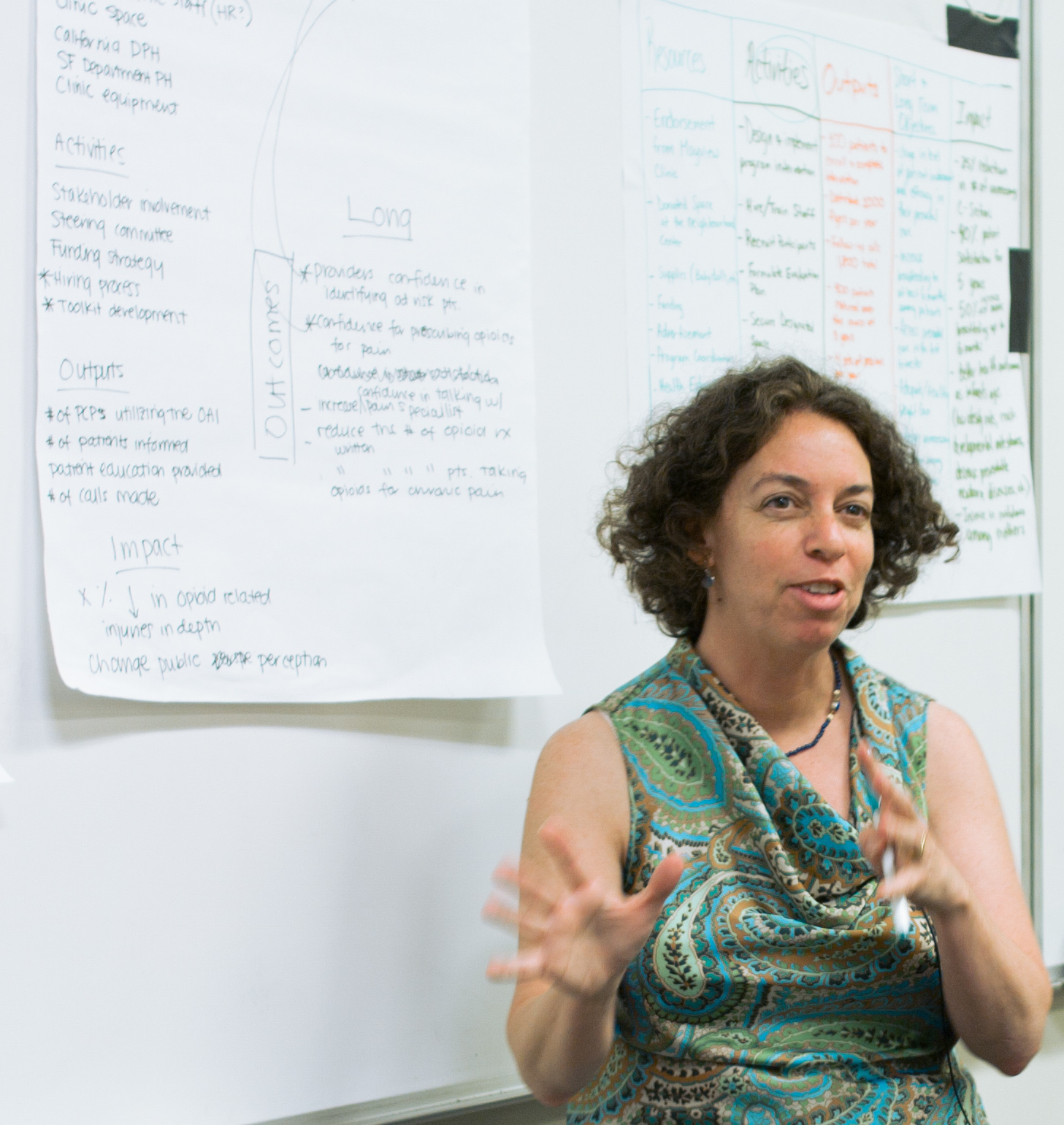
Bio
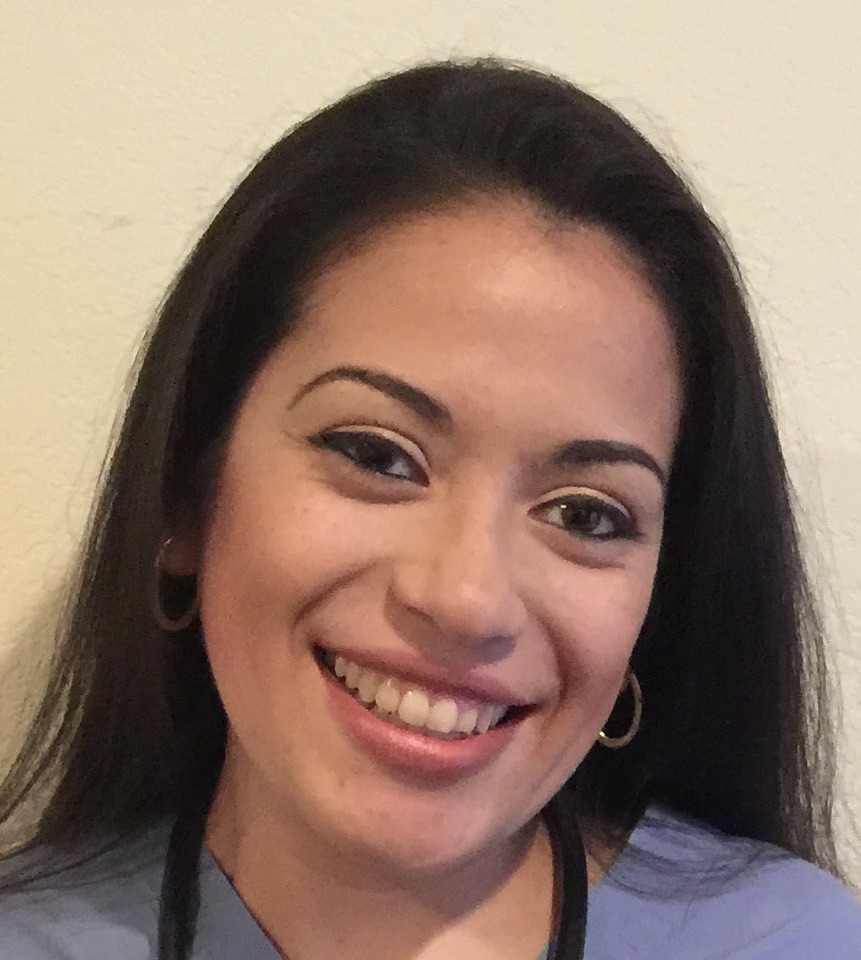
Bio
Implementing the COVID-19 response through the digital space
Relying on digital and online platforms, CORE Group and partners have developed various initiatives for COVID-19. As a response to the need of information for community-based health workers and local communities, we launched in collaboration with Last Mile Health, Medical Aid Films, TechChange and Translators Without Borders, the COVID-19 Digital Classroom, an online platform that includes guidelines, resources, animations and courses. Responding to the need of coordination, CORE Group has hosted, for the past three months, more than 11 global coordination virtual meetings, including a wide range of topics such as: emergency preparedness, digital health, gender and youth engagement in the pandemic response. We are proud to have developed the CORE Group C19 Virtual Marketplace, an innovative online platform, powered by Needslist, to connect in real time the commodities, training and communications needs of local communities, to prevent and respond to COVID-19, with suppliers and manufactures. Launching in Kenya, Somalia, Nigeria and Ethiopia, with more countries to follow. Physical distancing prevents us from meeting in person but does not mean we cannot bring our networks together online in the Virtual Summit “Lives in the Balance”, co-hosted with the Partnership for Maternal, Newborn and Child Health. A space to reflect on the current situation, share best practices and innovation, and act by aligning, planning, and activating our joint response. All these activities have an equity lens, working with and for vulnerable populations, ensuring gender representation, geographical balance and meaningful youth collaboration.
Speaker
Bio
Virtual Capacity Building Safe Space on Life Skills and SRH for Girls During COVID-19
Stand With A Girl (SWAG) Initiative is a registered youth-led, not for profit organization dedicated to ensuring that every girl in Nigeria no matter where she is born or found is empowered to fulfill her maximum potentials. As girls stay at home and stay safe in view of the COVID-19 Pandemic, SWAG Initiative offered 137 girls (ages 10- 25) a free Virtual Capacity Building Safe Space to engage, learn and share experiences in April and May, 2020. The goal was to build capacity of girls on life skills towards raising a new generation of informed changemakers. Sessions delivered include; Leadership, Communication, Self-esteem, Advocacy, Public speaking, Storytelling for change, Career Development, Emotional Intelligence and SRH Issues. The project deployed the steps below to achieve the virtual safe space; •Set up 2 WhatsApp groups (Group 1: ages 10-17; Group 2: ages 18-25) •Facilitators were assigned topics per session based on their expertise •Facilitators prepared not more than 10 slides and submit their presentations at least one day before their session. •Facilitators upload slides, pictures, quotes and voice notes explaining the content attached. •Each session lasts for I hour- 45 minutes for presentation and 15 minutes for Q&A. The pre and post evaluation of sessions reveals over 50% increase in the girls' level of knowledge on these skills. Also, girls developed videos on the impacts of the safe space. Structured virtual safe space could serve as viable and cost-effective tool for continuous capacity building and mentoring in time of pandemic.
Speaker
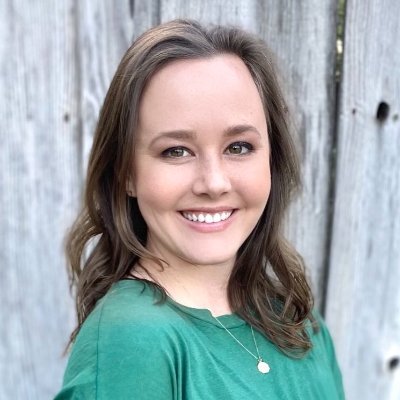
Bio
Stop COVID-19 Infographics In over 100 Local Languages
Background: Misinformation about the coronavirus has spread rapidly and deeply globally and has negatively affected people’s response towards the pandemic. Therefore, an international NGO, Slum and Rural Health Initiative, developed infographics on prevention of covid-19 in over 100 local languages tailored to needs for needs of vulnerable population. Description: The behavioral change communication messages were developed following recommendation of credible sources (World Health Organization along with Centre for Disease Control and Prevention). These attractive, beautiful, captivating, delightful and educative infographics on can be publicly accessed at www.tinyurl/stopcovid. Results: These infographics has been featured by reputable organizations such as UNICEF West Africa, UNFPA, UNCHR, USAID, ONE, EBSCO and more than 40 prestigious organizations. It has also be used in physical outreaches by local organizations in more than 5 continents and 30 countries. These messages have also been shared massively to more than 50 million people globally via social media platforms. Conclusion and recommendation: Slum and Rural Health Initiative Stop covid-19 infographics in over 100 local languages which has reach over 100 million people has shown the wide spread of properly developed education, information and communication (EIC) materials. Therefore, more initiatives like this are needed to reach, inform and reform vulnerable population with the right, accurate and practical health information.
Speakers

Bio
Bio
Finding connection while social distancing: A human-centered tech approach to the loneliness crisis
Well before the COVID-19 pandemic, there had been growing attention to a phenomenon experts call the “loneliness epidemic,” which has hit youth especially hard. With public health measures now in place, connection and emotional support are even harder to find, further driving the crisis of loneliness among young people. HearMe, a free support app developed by Adam Lippin, was launched before the pandemic, but the virus has put a spotlight on our vulnerability to loneliness and reinforced its use case for health and wellbeing. The app works by connecting users, primarily young people aged 18-24, to trained volunteer listeners for instantaneous text chats. Since the pandemic’s onset, HearMe has quickly adapted to changing realities by providing a COVID-19 conversation category and training listeners to be available for related fears and anxieties. As a result, HearMe has seen significant growth with listeners and members in more than 65 countries. HearMe’s listener model creates a sustainable and scalable peer support network which offers a level of shared understanding and validation. Though HearMe is not intended for serious mental health conditions, peer support has been found to improve self-esteem, decrease substance use and depression, and reduce hospitalization rates. This model is particularly useful as many existing services do not adequately attract, engage or serve young people. As COVID-19 continues to limit our ability to maintain connections, our session will highlight how solutions such as HearMe can provide young people with easy-to-use access to emotional support in the palm of their hands.
Speaker
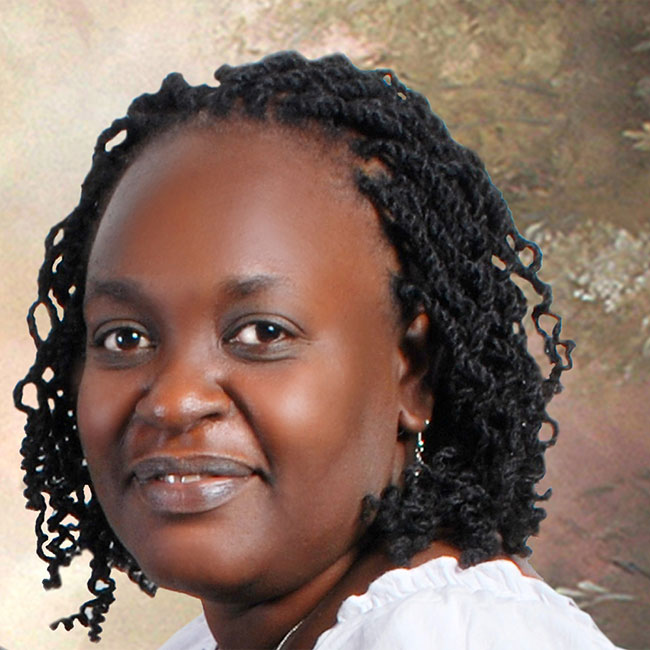
Bio
Re-engineering Virtual Platform to Provide Youth Access to SRH Information and Referral During COVID –19 Pandemic in Nigeria:NURHI2 Experience
NURHI 2 is a Bill & Melinda Gates Foundation supported Project aimed at increasing access to quality FP services in Nigeria. NURHI2 set up a WhatsApp group to increase life planning ambassadors and youth led/focused organizations' knowledge on SRH, personal development and life skills. Life Planning ambassadors are young people (15-30) based in project intervention States in Nigeria. During COVID 19 pandemic, NURHI2 team opened up an enquiry discussion with these youth on the WhatsApp platform to identify and monitor SRH challenges young people are facing. Findings include commodity stockout on contraceptive, increased cost, lack of access to facilities due to movement restrictions,etc Based on these findings, NURHI2 rolled out expert-led sessions to provide accurate and adequate SRH information and dispel the myth and misconceptions on WhatsApp group. Life planning ambassadors were provided with e-copy of FAQ on FP and directories of supported health facilities to share with peers. As a result of these interventions, youth focused organizations and life planning ambassadors provided monitoring information on the platform that includes significant improvements in access to FP information and services. Also, ambassadors developed one-minute videos on how they are supporting the Covid19 fight, particularly as it concerns SRH of young people. These videos were uploaded on the organization’s social media platforms to reach out to more audience. Existing virtual platforms that are well known and trusted play critical role in providing and scaling up information, serve as knowledge warehouse and referral for AYSRH services in a time of pandemic.
Speaker
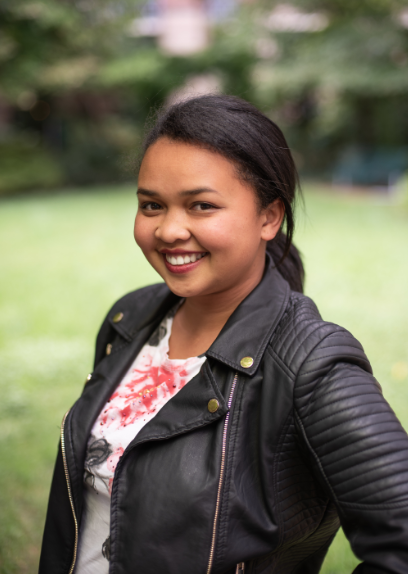
Bio
The (Not So New) New Normal: Using (Not So New) New Media to Reach Teens in the Age of Covid.
Zoom was released in 2013! Surprised? Like Zoom, many of the new media solutions we’re turning to have been around longer than we realize. But for teens, these solutions are far from new. Young people have relied on new media to meet their needs long before the Covid pandemic They’ve used it to socialize and find others like them, to obtain information their parents or communities tried to keep from them, for identity formation, political organizing, and yes, of course, for entertainment, the only thing people think “these kids are doing on their phones.” Teens haven’t “turned” to new media, they’ve always relied on it as a substitute for adequate in-person support and information. What’s new is our urgency to find ways to use it. Bringing effective behavior change programming to adolescents has never been more of a priority. For the last couple of years we've helped several agencies use a few simple digital tools to implement evidence-based approaches to working with teens online. Many EBIs’ core elements, activities, tools, and techniques translate seamlessly to virtual settings. It's a matter of understanding the activities' science-based underpinnings, not being a tech wizard. What’s more, they engage teens far more than traditional GLIs and CLIs, can ensure greater anonymity, and provide real-time linkages to online resources. We’ll explore these super simple but powerful methods by DOING some activities and helping your figure out how to integrate these approaches into your work.
Speaker
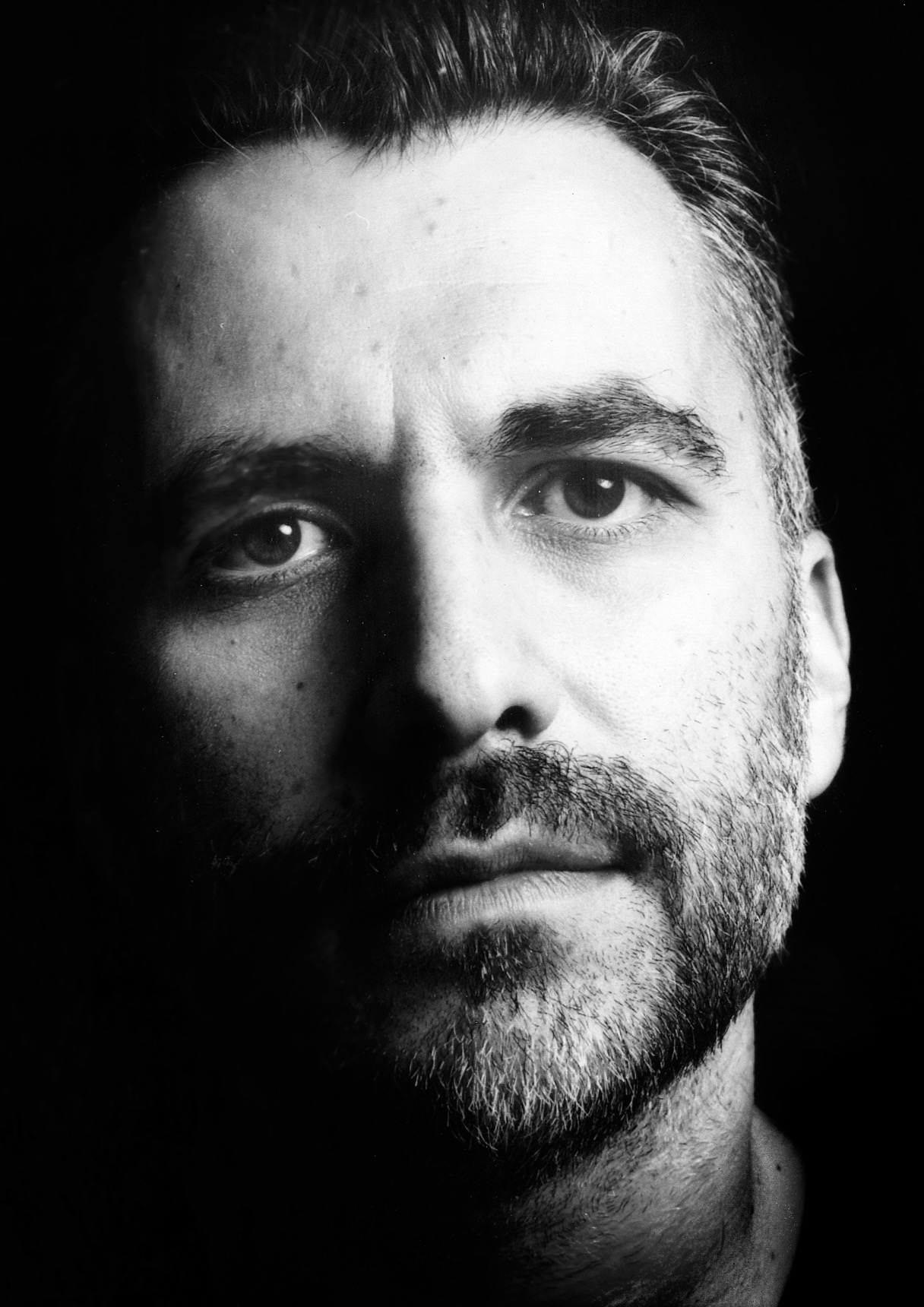
Bio
Gen Z Emerging Insights: Presented by Hopelab's Young Advisory Council
When building digital health tools for teens, there is no full-proof formula for creating products that are engaging and adapted - unless they are given a seat at the table. Hopelab’s Young Adult Advisory Council (YAAC) was the first step in developing a feedback loop where young people could represent their needs, wants, and work with experts to create products designed truly for the end-user - themselves. Come to our session to explore how Youth Advisory Councils support our understanding of what young people are most concerned about, how THEY are thinking about their own health and well-being, and how the YAAC was critical for the organization’s direction in 2020. This presentation will examine the complex, fun, and incredible nature of engaging youth in complex systems of designing a product while keeping the standards, stakeholders, research, and actually getting sh*t done!
Speakers
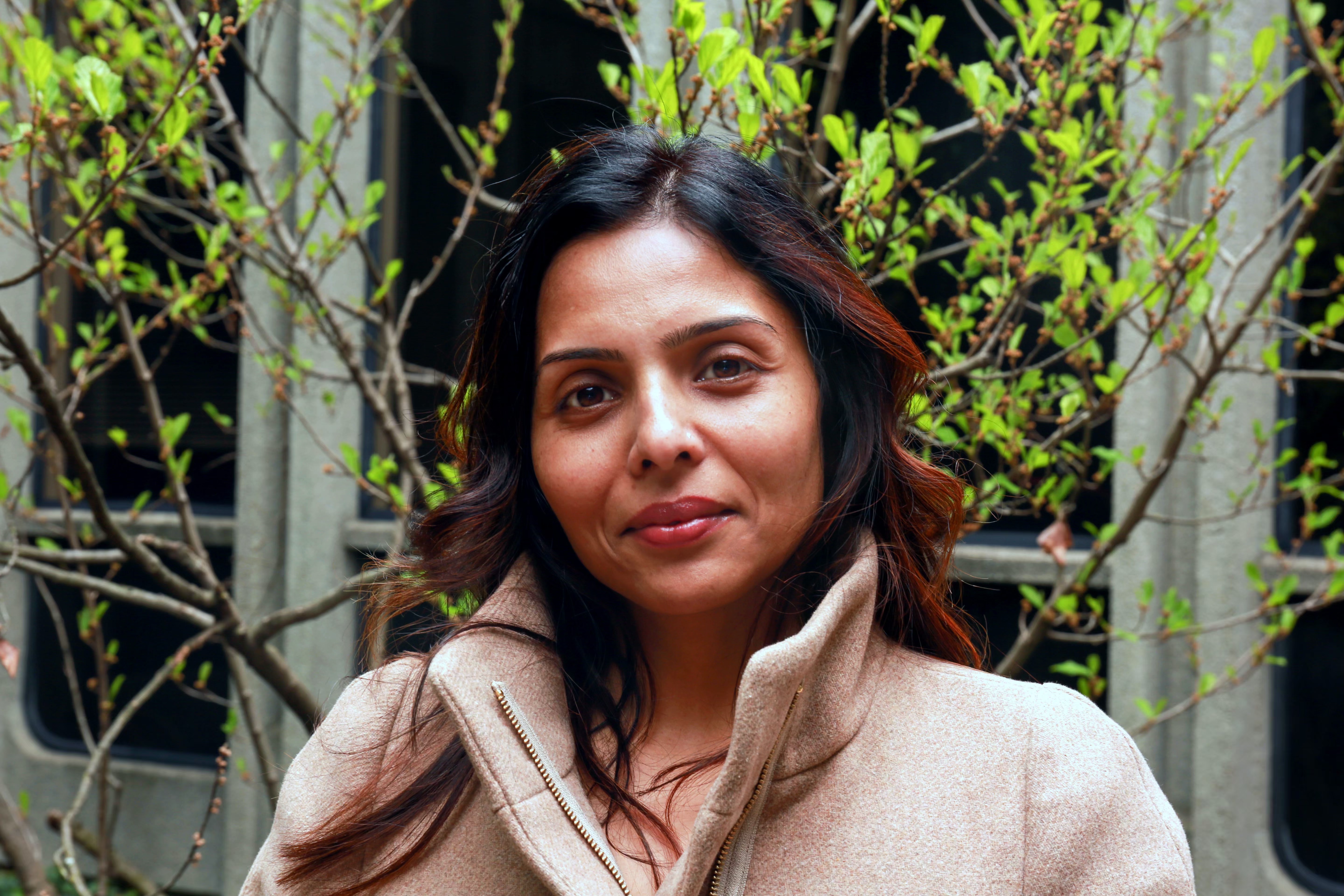
Bio
Bio
Bio
Safe Shelter Collaborative: helping find safe shelter for runaway and homeless youth
What if sheltering agencies could quickly access a network of vetted shelters to find immediately available survivor-appropriate shelter? And what if those shelters also could engage their donors to support hotel placements (when survivor-appropriate)? Developed in close collaboration with local shelters, the Safe Shelter Collaborative is a free technology-enabled program designed to provide both of those capacity-building services. Finding shelter is rarely easy. It often includes multiple phone calls and emails to other shelters, and survivors reliving the trauma with each retelling of their story. The process can take hours, and sometimes days—-during which time, survivors can be vulnerable to returning to the environments they were seeking to escape. The Safe Shelter Collaborative stops this cycle. The Safe Shelter Collaborative currently helps supports survivors of domestic violence, sexual assault, and human trafficking, and is now exploring how the program also could assist shelters who support Runaway and Homeless Youth.
Speakers

Bio

Bio
Natural language processing and content analysis of youth’s social media posts to inform implementation of next generation HIV prevention
Improving equity in sexual health promotion for youth as it relates to HIV prevention must consider integrating youths’ attitudes, values, and experiences when rolling out new products. Emerging modalities (e.g., gels, rings, douches, vaccines) for biomedical HIV prevention strategies like pre-exposure prophylaxis are currently being assessed for efficacy in clinical trials. Understanding the acceptability of adjacent products (e.g., HPV vaccine, fleet enemas) to future modalities may permit HIV prevention experts to effectively market new products as they become publicly available. Our presentation highlights important findings from youths’ social media posts that describe attitudes and user experiences of HIV prevention adjacent products and behaviors and how they may inform the rollout of next generation HIV prevention modalities.
Speaker
Bio
The Need for the Promotion of Positive Social Influence in Web-based Tobacco Prevention Programs
This Digital Poster presents research on the power of social influence in motivating adolescents to avoid tobacco use. By examining the success of a web-based tobacco prevention program called ASPIRE, the results of this study show that being a positive influencer of others can prevent initiation of tobacco use. Future work needs to introduce features of positive influence through online peer-to-peer interaction, which is lacking in currently available tobacco prevention programs for adolescents.
Speaker
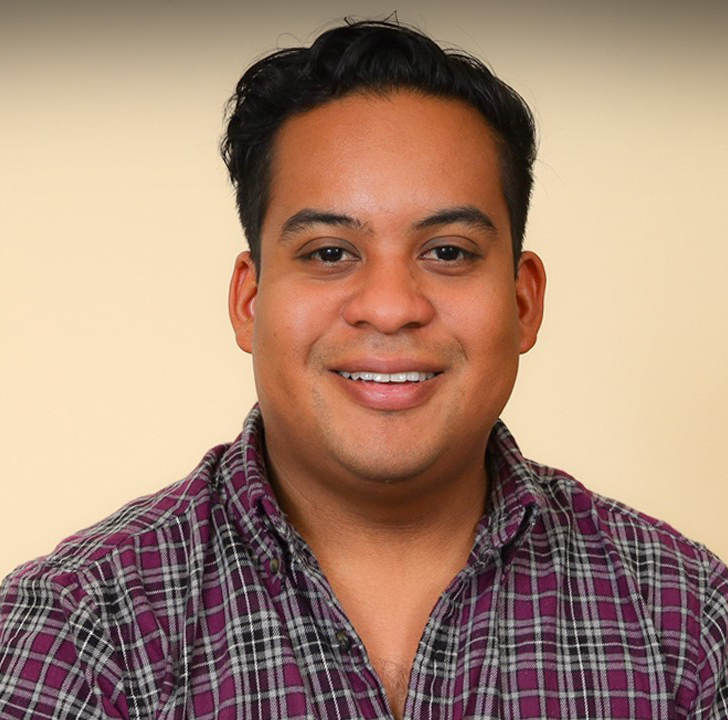
Bio
The yHEART PDX Project, Vol. 1: Youth Participatory Research on Local Social Determinants of Health
A major pathway for the powerful effect of “place” on health is through social determinants (SDH). However, many local health departments (LHDs) are confronted with fiscal, political, and jurisdictional limitations that compromise their ability to adequately assess/equitably respond to community SDH concerns. Moreover, youth perspective is seldom included in LHD assessment efforts. Information and communication technologies—ICTs (e.g. smartphones)—open the door for low-cost “crowdsourcing” approaches for local SDH assessment, and can offer youth opportunities to inform LHD practice. This youth-led presentation introduces the yHEART PDX Project as a model for community-inclusive SDH assessment approaches led by local youth. yHEART—youth Health Equity and Action Research Training—trains youth residents of N/NE Portland as public health researchers, integrating social epidemiology, YPAR, and ICTs. Youth will co-present their findings from yHEART PDX “volume 1”, including geo-located photos, web-based maps, and creative arts research products based on their data.
Speakers
Bio
Bio
Positively Connected for Health (PC4H): A Youth-Driven mHealth Intervention for HIV Prevention and Treatment
Adolescents and young adults (AYA) are disproportionately affected by HIV and fewer than half of AYA who are prescribed meds take their meds and achieve an undetectable viral load, but mhealth interventions can provide supplemental support in real times and places youth need support to improve their health outcomes. Learn about our journey to determine acceptability, feasibility, and preliminary efficacy of a 1-year mhealth intervention for youth living with HIV in Philadelphia, PA that consists of a digital health literacy workshop coupled with a medication adherence app with features including an avatar, reminders, calendar, health discussion forum, and more.
Speakers

Bio
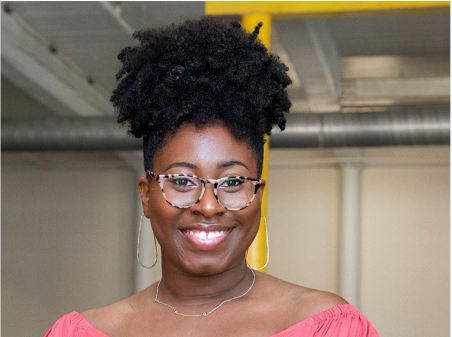
Bio
Engaging & Empowering Community Youth Change Agents
With a strategic training and mentoring program in place, TRAIL’s Teen Task Force has demonstrated that youth have the incredible drive to empower and bring about change that paves the way for a healthy and thriving community. This digital poster will: highlight strategies in creating and training an effective TTF that the audience can replicate in their own communities, review several youth led initiatives, and identify multiple levels of support that address the underlying causes of health risk behaviors in adolescents.
Speakers
Bio
Bio
VaxTeen: A Teenager's Effort to Educate Her Peers and Give Them the Tools They Need to Get Vaccinated
VaxTeen was founded in response to the growing trend of teens attempting to self-consent to vaccinations. A cursory search of Reddit reveals that many teens with “anti-vax” parents are desperately trying to figure out how they can get vaccinated and coming up short on answers, a testament to the complexity and futility of trying to decipher minor consent laws. VaxTeen serves as a centralized repository allowing users to determine what vaccines they need and at what age they can receive them without parental consent based on the state they live in. VaxTeen also acts as a much-needed public health campaign to educate teens about vaccines, designed uniquely by their peers.
Speaker
Bio
askNivi: Leveraging AI to scale access, behavior change, and actionable insights in health
If you've ever googled a health question, you know how the intimidating the seemingly endless list of sometime conflicting resources can be. Imagine if it's your second language or you're looking to confirm or deny a culturally-specific belief you've heard from a friend or relative. And even if you find your answer, do you know how to act upon it? askNivi solves this challenge for young consumers in emerging markets. Our AI-enhanced conversational interface gives users personalized health information, screenings, and referrals to providers. We connect young users with the most relevant and actionable information through popular channels including Facebook Messenger, SMS, and WhatsApp. For our business partners, our dashboards give actionable insights to help partners better serve consumers. The session will touch upon how we have applied the Digital Development Principles and how our partners use Nivi insights to inform their health programming, products, services, and self-care initiatives.
Speaker

Bio
Co-designing a menstruation app with teenage girls
Want to know how to include young women and girls in the design of a solution from the very beginning? Want to know best practices for user testing with girls? Come and learn from our experiences in creating Oky, a period tracker app designed with and for girls in Mongolia and Indonesia! In this practical session you will: - Learn how to co-create a digital (health) solution with and for girls. - Learn best practice tips for running HCD workshops and user testing - Have a go at designing your own solution for girls Participants from all backgrounds are encouraged to attend (no need to be tech-savvy!), and we especially welcome women and youth participants!
Speaker
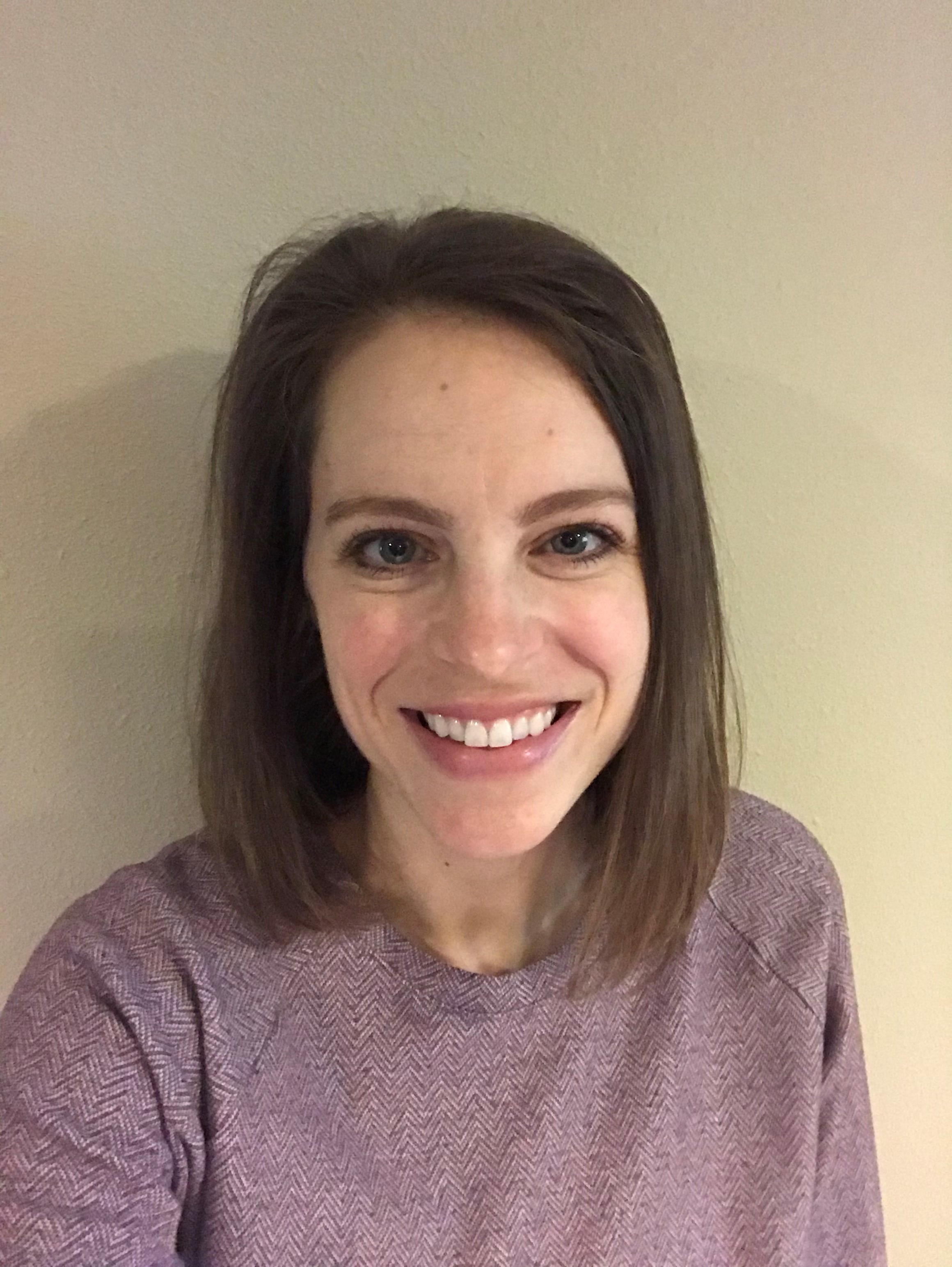
Bio
Can I Touch Your Elbow? The consent-messaging "ear worms" that make asking for consent challenging for young people.
So many of young people I work with report similar perspectives on the issue of consent; they joke about it – “May I touch your elbow?” - and in doing so make a good point! It’s embarrassing to think of seeking consent in the ways they have been TOLD to, or worse, had modeled by someone who doesn’t look or think like them. Like 1-800-KARS 4 KIDZ, once that corny impression burrows into their brains it’s hard to get it out. Working with the NYC DOH and the young people that comprise their Teens Connection Program, we produced three, one-minute videos from three very different perspectives. They are individually designed to reach a very narrow audience - the one that the teen-producers represent. Each of these stories models a different way of asking for consent, only after the main character thinks through the best and worst possible outcomes.
Speaker

Bio
PrEP4Youth: Tackling stigma, side effects, and more through empowerment
Did you know? PrEP offers more than 90% protection against HIV when taken correctly. A series of five public service announcement videos was created to encourage PrEP as an acceptable HIV prevention method for adolescent girls and young women (AGYW). PrEP is more than just a pill, but also a source of aspiration, empowerment, and independence. The videos feature actresses from MTV Shuga: Down South, who tackle critical questions on many AGYW’s minds regarding testing, combination prevention, side effects, stigma, and adherence. See for yourself the power of putting important health information directly into young people’s hands… on their screens.
Speaker
Bio
How to spot, and stop, health misinformation on social media
Fake cancer cures that corrode your skin, a juice that claims to cure chronic illness, and eating disorder blogs that contradict all medical advice. These are just a couple of examples of health misinformation I've investigated as a BBC journalist. This workshop will equip the audience with tools to both spot, and stop, health misinformation they come across on the internet. Testimonials, blogs and influencers can often provide tempting solutions for everything from birth control to chronic illness, but health misinformation can have serious consequences. We'll talk about some of the people who have fallen very ill as a result of following online misinformation, and share and brainstorm potential solutions to this problem including how we get more qualified health professionals on social media.
Speaker
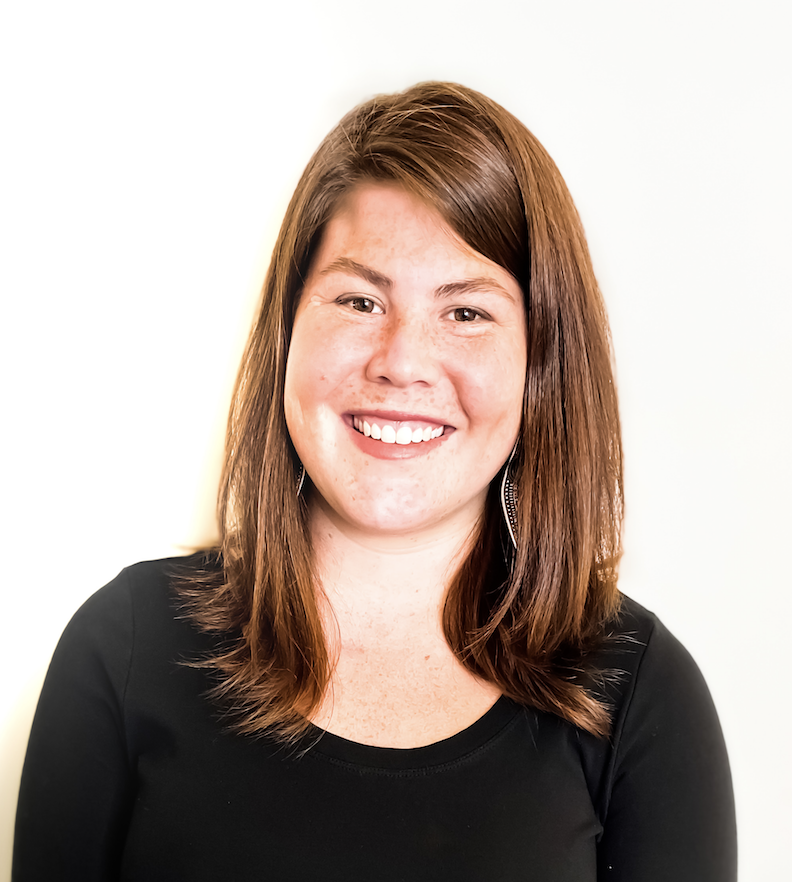
Bio
How I turned my experience of sexual assault into an online platform to help others
After being the victim of an assault in London in early 2015, I published a letter to my assaulter in a student newspaper, which went viral, attracting enormous attention and prompting the sharing of countless experiences by others around the world on social media. That reaction prompted me to set up the international #NotGuilty movement against sexual violence and misdirected victim-blaming, which has a website providing a platform for people to speak out. This website has been covered by the international press and allowed survivors who are not able to speak out in their communities a safe and practical way to share their experience and feel less alone. This talk will show how I turned a negative experience into a positive movement for social change, and explain how to make real impact with online health movements.
Speaker
Bio
What is COVID-19 and how can I protect myself, my family and friends
“What is COVID-19 and how can I protect myself, my family and friends” animated video was commissioned by Advocates for Youth, UNFPA and Amaze.org for the Eastern and Southern Africa (ESA) region. The video’s core message is to educate and drive the importance of social distancing and more importantly the practicing hand hygiene with water or sanitise gel message to the lower- and no income demographics in ESARO. Animation - and the injection of edutainment is produced by Turbulence Studios in South Africa.
Speaker
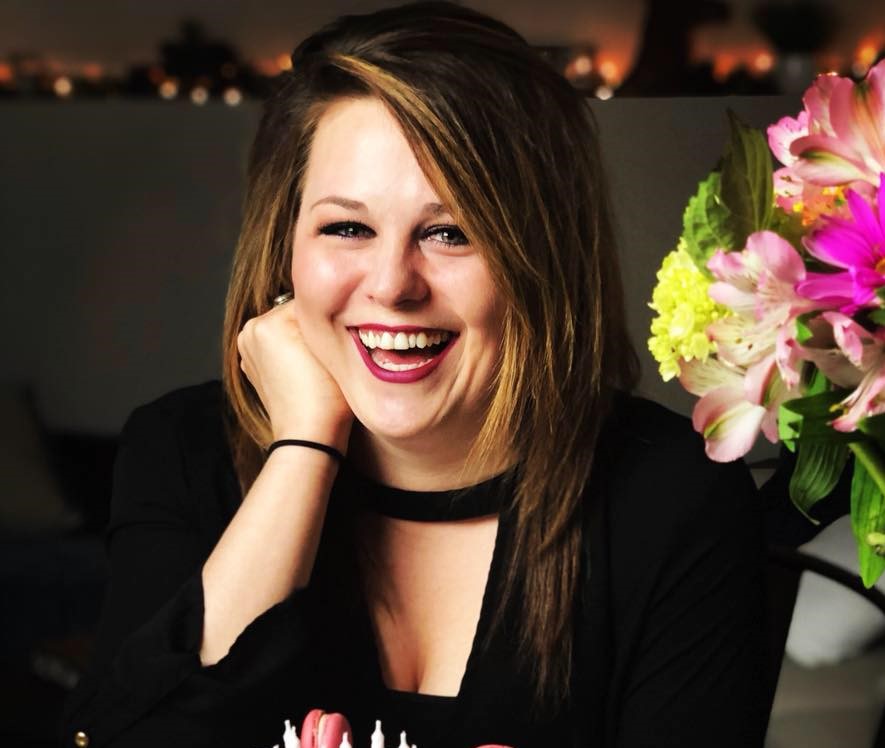
Bio


